#where the soldier's PTSD has a direct effect on the ending of the story
Note
Will enby Helsknight/trans Tanguish/top surgery scars/stubborn avoidant Welsknight in a gender crisis make it into the main story of RnS? Like, a full acknowledgment of it? Because yes, us on tumblr are aware (and happily bully RnS Wels for it) but I’m curious to how it may be brought up in the main storyline instead of rambles and drabbles. (Don’t get me wrong, those rambles and drabbles are what get me through the day. But my best friend, who isn’t in the MCYT fandom whatsoever, just caught up with RnS and doesn’t use tumblr, and besides spamming her with tumblr posts I wanna know how much I can revel in the glory of the skrunkles with her!)
That is a great question, actually. And the answer is I don't really know.
So this is one of the downsides to writing things chapter by chapter. If I had gone into this going "oh heck yeah they're trans", this would've come up in the plot way sooner. It's nice information 1) for all the trans folks reading and 2) because it has the potential to inform the themes in the narrative. This whole story is about two chief things I think: death [the inevitability of] and identity [what defines you and why]. Why should you care if literally no one else (including the universe) does? That would be so cool to speak about in terms of a trans allegory! Why do you care about gender when it's just one thing in a world of crazy things? Or at the very least, how does it inform your identity? But this is a change I made on a whim suddenly, and I know Exactly Where I Want This Plot To Go, so trans topics and allegories as Plot Points probably won't happen.
On the more technical side of introducing trans characters -- how do you do that without just dropping "oh btw they're trans" in? Like, how do you make it a relevant thing to talk about, that doesn't feel forced or shoehorned in, especially this late in the story? Probably me overthinking, but I read it done wrong so often. It gets tired. And if I ever work on my original stories, there are trans characters in there! If I can figure out how to Do It Well in a fanfic, then I can figure out how to do it in original fiction someday maybe. So I kinda wanna take the introduction seriously? I've actually been thinking about it so much I've thought about rewriting the intro to the next chapter ahaha [it already needs rewritten in general, there's a lot going on, but the intro was going to be Helsknight waking up from something, and he sleeps shirtless, and not addressing top surgery scars then would be kinda silly I think.]
I can say at the very least, Gender Avoidant Wels probably won't factor in the story much. He is a character, but I don't think he'll become Enough of a character to faithfully address something like a trans self discovery arc. At best his issues with gender might be mentioned in passing.
Sorry! I know you probably want a better answer! My answer is basically: I don't know I'm still working on it. I want it to be there, but the capacity it's there is undecided.
That being said, I've been sitting on this glorious ask since the shenanigans started and the temptation to just Do That grows every time I read it:

#rns asks#trans tanguish#nonbinary helsknight#anonymous#no one asked but i think to date#the best intro to a trans character ive seen#is from the book 'what moves the dead'#where the mc explained they were a soldier and when you join the army you get assigned pronouns that only soldiers get#and they explain some people join the army to fight and some join because their old pronouns dont fit#and i dont think the mc ever defined why exactly they chose to be a soldier#but hey thats their pronouns now take it or leave it#them being a soldier has impact on the plot which means#even if the story isnt a trans story [about being trans] their pronouns still have weight and importance#the long pronoun explanation has a very compelling reason and never feels odd or forced#and it gets even more interesting in the second book 'what feasts at night'#where the soldier's PTSD has a direct effect on the ending of the story#[sighs dreamily] goddamn it T Kingfisher how do you always write so good#anyway enough about my writer crush on Kingfisher
49 notes
·
View notes
Text
Ner Jetii
An angsty one shot between Rex and gender neutral Jedi reader. The reader is a Padawan but of age. It’s not stated who the reader’s master is or what battalion they serve with but, they talk of rescue and relief so Plo Koon and the 104th could be implied if you so please.
⚠️Mature audiences recommended⚠️
Warnings: Established romantic relationship between Rex and reader, so much angst, heavy survivor’s guilt and reader blaming themselves, reader losing their company in a seppie trap, descriptions of blood and death, dying words, past torture, ptsd flashbacks, hallucinations, mention of post Umbara trauma, mention of nightmares, reader self-harming in a way (using pain to drive their will and unconsciously punish themselves, self-destructing/over exertion, simile of falling through ice/drowning, implied capture and torture of reader, mention of capture and slavery in the beginning, fluff at the end, reader is so traumatized and paranoid, no y/n just pet names, small kiss at the end, reader needs a hug, reader gets that hug from Rex, comforting! Rex, Rex sings to you in Mando’a cause I’m a slut for that language. I hope that’s all 😭
Mando’a translations:
Cyare/cyar’ika: Darling/beloved/sweetheart
Mesh’la: Beautiful
Mando’ad: Mandalorian (lit “child of Mandalore”)
Vod/vode: brother/sister/comrade
Jetii: Jedi
Ner: My
Ret’urcye mhi: Goodbye (lit “maybe we’ll meet again)
Bal kote, durasuum kote: For glory, eternal glory
The lullaby lines are made up from a phrase of remembrance (translations are included by them)
It was just a relief mission. You were supposed to bring food and medical supplies to a remote outer rim system that had been effected by separatist blockades. An easy and simple mission, one to introduce shinies to life off Kamino. At least that’s what it was supposed to be. That was until you had led your company straight into a Seperatist trap. It turns out there were no citizens to help out, no citizens at all for that matter, those that were there had been captured and sold. It hadn’t been much of a fight, you were severely lacking in firepower and experienced soldiers. Sure as a Jedi you are worth a couple hundred battle droids but you can’t help your men when you’re engaging a highly dangerous Sith Lord. At least they had died fairly quickly with minimal suffering. That’s what you get when you have 10 battle droids for every trooper. They keep firing even after all are down. They don’t take prisoners, well not troopers anyway. Maybe it’s for the best for some of them, though. The shinies won’t have to see firsthand the effects of the war that has plagued the galaxy, or wake up trembling with the sound of blaster fire ringing through their ears at night. They will have died knowing nothing more than training exercises and stories from their vode. The others won’t have to mourn for lost vode anymore, they won’t have to worry about their place in the galaxy after the war. Not gone, merely marching away as the Mando’ad say. Marching away from endless battles and no choices for how they live their lives.
Yeah, it was for the best.
But, if that was the case why do their voices haunt you at night? Cry’s of “You could have saved us.” “We were so young.” “Please General I didn’t want to die this young.” and of course the one that nips at your brain 24/7, like a headache that won’t go away “You led us straight to them.”
You didn’t mean to. You’re loyal to the republic and your men. But you’re a Jedi right? You should’ve sensed it, the fact their was a handful of force signatures on a planet said to have billions of citizens and the presence of a Sith Lord for kriff’s sake. You could’ve sensed it. If only you had been been paying attention instead of laughing at stupid jokes with your men, those men same might still be alive.
The Jedi council had tried to reassure you
“A Padawan you still are and an experienced Sith Lord Dooku is. A fair fight it was not.”
“Dooku can mask his force signature, young one. It wasn’t your fault.”
“We cannot save everyone. We are Jedi not gods.”
But that didn’t stop the nagging at your heart. Nor did it stop the knowledge of why the separatists developed such a complex trap to eliminate such a small number of troopers. It was because of you. You had important separatist codes locked in your head, gathered from previous missions. They knew you would be easiest to get at because you were still a Padawan and worked primarily on rescue and relief missions. Missions with low firepower and minimal expectance for combat. Master Windu knew the same codes, but he is far too experienced for them to go after. If only you had trained more, longer, better. You think back to every night you snuck out to have some fun. If you had stayed and went over your studies maybe you could’ve saved them. You wouldn’t have had to hear the dying words of your Captain. Oh your sweet Captain. So loyal and eager since he was shiny right up until his last choked out battle cry of “Bal kote, darasuum kote. Ret’urcye mhi, vod.”.
Forever glory? Where was the glory in being led to a massacre by your Commanding Officer?
He had called you vod. A title reserved for their brothers and those they respected. You didn’t deserve that respect. You weren’t a comrade that had fought valiantly by their side, you were the person that was supposed to protect them, and you let them down. The Mando’a farewell directly translates to “maybe we’ll meet again.”. If there is an afterlife and if you did, you don’t think you could look them in the eyes.
The trauma supporters the council had directed you to talk to when you got back had told you these thoughts were normal. “Survivors guilt” they had called it. As the only survivor your brain tries to tell you it was your fault. But, you weren’t a trooper that had managed to survive. You were the commanding officer. They told you that didn’t matter, it wasn’t your fault.
You wish everyone would stop telling you that, as far as you’re concerned, it was. So you tried to do everything you could to never let that happen again. You brought experienced men on relief missions, ignoring their complaints of this being a shinies job and a waste of their experience. You spent your time either sleeping, eating, training or researching new strategies. Not that your sleeping actually involved much sleeping. It mostly consisted of tossing and turning, flashes of dead troopers and... him. His sickly grin as you writhed in pain under his tortures, the blood curdling laugh as you tried to escape. You’d heard stories of how sick the former Jedi was, but experiencing it was something else. Not just the torture but his presence. Dark, looming and cold. Like falling through ice into cold water. Trapped and desperate to escape.
Every slightly negative feeling that leaked from your fellow Jedi made you freeze. He’s here, you’d think, or that Jedi has turned. So you walked around on eggshells, constantly wary and vigilant of any potential threats. Even now as you focused on the punching bag in front of you were scanning, reaching out with the force to sense any threats. It was becoming exhausting, so you opted to let pain drive your will. Not even bothering to wrap your hands as you threw punches at the bag. Your fists began to slide off the bag on account of your blood staining it red. But you didn’t stop, truthfully you didn’t even feel the pain at this point. You couldn’t tell if the red on your hands was your own or the memories of fallen troopers’.
“I should’ve fought harder.”
You hit the bag with a powerful right hook.
“They’d still be alive if I had”
You opted for a jab.
“I led them straight into that trap.”
Your cross didn’t consist of much technique, just rage and power.
The same time you heard the door to the training room being opened you felt an icy breath near your ear. “The pain will end if you just give me the codes.”
“Never!” You snarled, whirling around and summoning your lightsaber from your belt. Immediately igniting it and pointing it to face the Sith Lord. I look of poor malice fell across your face, a mask to hide the fear.
You were met by a startled trooper, his wraps falling from his hands and his body moving into an instinctive defensive stance.
It took you a second to realize there was no danger, your eyes raking behind him to ensure of such. You disengaged your lightsaber and dropped to your knees with shaky breaths.
“I thought your were him, Rex, I thought he’d found me.” You sobbed into your hands, flinching as you felt a hand on your back.
“It’s okay Cyare, you’re safe, I’ve got you.”
You let him pull you into his lap. He gently grabbed your hand with his, careful to avoid the raw patches that were still oozing blood. His other hand stayed on your back to rub soothing circles and pull you tight to him. He held you as sobs wracked your body, his lips by your hairline, whispered assurances coming from them.
He started to hum softly before they turned to words. It was a Mando’a lullaby, one sung to grieving vod after a loss. You didn’t know many of the words, your knowledge of the language not extending much past the nicknames Rex would call you. It was still comforting though, his voice soft as he ran a hand through your hair.
“Ni su’cuyi, gar kyr’adyc.”
You realized you recognized what he was singing. You heard it whispered from the lips of troopers as their vode mourned. Rex had told you the meanings of some of the lines. (“I’m still alive, but you are dead.”)
“Ni partayli, gar darasuum” he continued humming. (“I remember you so you are eternal.”)
Your sobs slowly turned to sniffles as you sat there with him. Feeling a small sense of comfort and security for the first time in weeks. Relishing in the feeling of being in his arms.
“Cyar’ika.” He had whispered when you had finally gone silent, your breaths coming even and deep now. He brought the hand from your hair to your cheek, gently encouraging you to look at him. “Are you with me, little one?”
You nodded and blinked up at him with swollen eyes. You whispered a thank you as you searched his face. It was soft yet slightly taught with worry. His eyes were sparkling with held back tears, and his mouth was turned up into a small, comforting smile. He looked so young yet so old at the same time. His soft features having been hardened from war and loss, scars from injuries his helmet couldn’t protect from laying here and there. Yet, even after years as a soldier in a war he had no say in he was still so compassionate. He wasn’t cold and unforgiving like some had become. He sat there with care and worry in his eyes, looking at you like you were his whole world. Even broken and bleeding he stayed with you. If you crumbled then he would pick up the pieces and put you back together, just as you have with him. You had been there for him, calming him down from nightmares of Umbara. You had taken his broken heart and sewed it back together with care.
So, he would do the same for you.
“I’m sorry.” You mumbled towards him.
“You have nothing to be sorry for, Mesh’la.”
“But I do-“
He cut you off by bringing his lips gently to yours and sealing them in a gentle kiss.
He pulled away to rest his forehead in yours.
“No you don’t, ner jetii. Not to me, not to anyone.”
He moved to stand up, still holding onto you to support you as you stood on shaky legs.
“Let’s get you to the medbay.” He gestured to your hands once he deemed you stable enough to be able to walk.
You nodded to him and accepted his arm around your waist, your own moving to seek support on his shoulder. You made your way to the medbay, averting your eyes from curious glances at your state. You knew no one would question or mock you. Not with Rex there, his gaze flaming with warning at anyone that looked your way. You still had a lot to get through. You knew more blood and tears would be shed. That voice would continue nagging in your head and you’d still see your fallen company in your dreams. But, it would get better, you had Rex to talk you down and hold you during those times. You had done that for him and you knew he would do the same for you.
His Jetii.
#Rex x reader#gender neutral reader#no y/n#Rex x reader angst#Rex x reader fluff#I just wanna give that man a hug#also the reader cuase they need it omg#this was gonna be slight angst that led to smut to help reader forget but I got carried away#I’m not projecting ur projecting
24 notes
·
View notes
Text
The MCU doesn’t understand Peter Parker.
Civil War did a good job introducing Spiderman into the fold organically and Homecoming was a nice starting point for Peter.
BUT
The MCU does not allow Peter Parker to face the consequences of his actions & grow on a personal level via his own journey (unattached to others like Tony).
A lot of people praised Homecoming for how accurate the teenager vibes were yet that authenticity and insecurity is limited to Peter Parker and not extended to Spiderman’s world. In Infinity War, Peter’s jump into battle with Tony makes sense due to the foster parent relationship and hero mentality, but after they save Dr. Strange on the ship, Spiderman’s confidence should start to waver. Tony warns him this is a one way trip, and Peter shows no signs of hesitation or fear despite a clear lack of experience (which for an awkward & clumsy teenager is unrealistic AF). Instead the MCU uses him as comedic fodder, throwing movie references and innocent child-like naivete to brush aside the potential for a very human and relatable situation where a kid is trying to prove their worth, in way over their head, and could experience doubt, anxiety, and embarassment over the choices made and about to be made. Consequences do not carry over the MCU for Peter and that is a huge lost opportunity.
Flash forward to Peter literally DYING AND SENSING DEATH ARRIVING at the end of Infinity War. A brilliant emotional beat and twist...that in no capacity ever affects Peter in Endgame or Far From Home. Tony Stark experienced immense PTSD, nightmares, and near heart attacks from just witnessing alien invaders. PETER FOUGHT A GOD IN SPACE & DIED and never is shown to be emotionally or psychologically effected. Instead all his character’s emotional capacity is put toward Tony Stark. Again. So this comparison and idea of legacy is more important than the characters arc or journey as a superhero earning his keep? If you don’t commit to consequences, the risks or stakes lose value. Peter doesn’t want to bring his suit to Europe because of TONY’S DEATH not HIS OWN. What about the notion of a uniform that places burden on oneself (LIKE a cop, a doctor, a soldier, or other roles that require immense willpower and are associated with heroism).
There’s no exploration of how his secret identity is damaged by the actions of his public one/vice versa? Tony Stark himself faced terrorist threats because of his Iron Man displays, Steve Rogers BEST FRIEND IN LIFE was purposefully used against him as a weapon that nearly killed him, Natasha Romanoff forgave Clint Barton for killing SHIELD operatives because she made difficult decisions fighting him and surviving THANKS to him when she was a teenager.
Where is Peter Parker’s personal struggle and when does it EVER manifest in the MCU? Will it ever NOT be undercut by jokes? You’d think after dying, he would question the choice to be Spiderman at all. In Spiderman 2 (Sam Raimi version) Peter concerns himself with how capable he is at saving and helping people. This fear and indecision leads to him LOSING his powers, a huge consequence and moment for audiences to relate to those everyday anxieties or responsibility and how capable a person can be. In the MCU this never happens. Peter knows other heroes exist and can fill in the blanks as he figures out his mental well being. If what’s left of the Avengers at the beginning of Endgame could handle Earth’s problems, post Endgame why couldn’t he ask one hero to fill in for New York (like DAREDEVIL) while he deals with everything he endured? The answer is the same reason why Peter Parker and Spiderman are consistently detached from one another’s actions; Tony Stark.
Tony being a father figure is fine. But the MCU’s obsession with Peter taking that role and position means there’s no room to dive deeper into Peter’s intentions and Spiderman specific journey. The comics always explored the roots of very human choices and difficulties Peter faced, both in and out of costume, and WONDERFULLY manifested his human problems into hero problems by evolving those issues. But comedy and Tony Stark disable Peter from actively carving his own path and mark on the MCU. In Far From Home, at his lowest point, instead of having to deal with all the consequences thrown his way and created by his actions,
Happy Hogan shows up in a cozy private plane, he jokes about Peter renting P0rn in Germany, gives him a half-assed pep talk about TONY, and suddenly building a new spiderman suit is all Peter needs to OVERCOME his emotional, psychological, and physical betrayal by Mysterio? What. The. Fuck.
Lastly, the MCU has used any consequential story thread for Peter and Spiderman as a punchline.THREE TIMES. In Civil War post credits, Peter jokes about being bullied is given a whole UI from Tony, gazes like a kid on christmas (with no regard as to how he almost died just for Tony Stark’s benefit).
In Homecoming Aunt May finding out his secret is a joke and never analyzed deeper, making it a surface level punchline gag and removing the moral and familial weight of May and Peter’s relationship. In Far From Home Peter has his identity revealed at the end of Far From Home in the exact same punchline gag way.
In the end, I think a big part of why Spiderman/Peter Parker are so disconnected is the creative team behind the films (solo ones especially). Directors are a dime a dozen, and while consistency is important (specifically for Avengers films) I think fresh ideas and perspectives are more important. I’m disappointed Jon Watts is returning for Spiderman 3, I was underwhelmed with Far From Home. Please let Peter Parker be himself, stop relying on Tony, CUT BACK THE JOKES that interrupt emotional beats, and give someone else the directing reigns. Please.
#spiderman#spiderman homecoming#spiderman far from home#spiderman mcu#tom holland#spiderman 3#sony#mcu#disney#spiderman spiderverse#peter parker#marvel comics#marvel#tony stark#avengers#avengers endgame#avengers infinity war#civil war#steve rogers#natasha romanoff#clint barton#captain america#black widow#hawkeye#disney +
81 notes
·
View notes
Text
Why Tom Holland Was Terrified of Playing a Bank Robber in Cherry
https://ift.tt/3aIcnLv
All of a sudden Tom Holland is everywhere. He’s got two movies out right now–the sci-fi thriller Chaos Walking and the drug/crime drama Cherry–and the latter is making its premiere on Apple TV+ this weekend after a limited run in theaters. He also recently wrapped production on the long-developing adaptation of the Uncharted video game franchise, and he’s currently working with director Jon Watts again on their third standalone Spider-Man adventure together, Spider-Man: No Way Home.
In Cherry, based on the best-selling semi-autobiographical novel by Nico Walker, Holland stars as the title character, a young Cleveland man who joins the Army after his girlfriend (Ciara Bravo) announces she is going away to college. He returns home from Iraq with PTSD, develops an opioid addiction, and eventually turns to bank robbery to support his habit.
The often harrowing film is directed by Anthony and Joe Russo, making it the first motion picture directed by the Cleveland-born brothers since 2019’s Avengers: Endgame. Cherry marks Holland’s fourth collaboration with the Russos, following Endgame, Captain America: Civil War (2016), and Avengers: Infinity War (2018), but his first time working with them without a superhero costume.
Cherry is also one of two recent movies, the other being last year’s grim The Devil All The Time, in which the British actor steps away from his generally sunny, innocent demeanor to take on a darker, more tormented character. We touched on that, working with the Russos, researching the world of addiction, and more–including little nuggets on No Way Home and Uncharted–when we hopped on Zoom recently with the young Mr. Holland.
Den of Geek: What did you respond to in the character of Cherry, as well as the script? What was your emotional and visceral response to his story?
Tom Holland: I think my initial response was that I was terrified of the idea of playing this character. It’s the type of role I’ve definitely never done before, and I was a little sort of apprehensive and questioned whether I could do it. Knowing that the Russo brothers were going to be there to support me through the job is what kind of tipped me over the edge into saying yes. But my initial response was, “I don’t think I’m the right person for this job because I don’t know if I can do that.”
You probably had a level of trust established with the Russos from working on the three Marvel pictures you did together. Did that make you feel comfortable right away?
Yeah. Absolutely. Still, I had that element of awe when it came to the Russos because they were the directors of the Avengers films, and I was still very much the new kid on the block when I was making those films. It was really nice for me to get to know them both on a more personal level and, obviously, that level of trust grew as the film progressed. It grew and it grew and it grew, and it’s now to the point where Joe and Anthony could ring me up, and I would be on set for them in a heartbeat. The trust between the three of us definitely grew.
How is their style of directing different on this? Was there more of a personal rapport because of the fact that they’re not dealing with the same kind of visual effects as in the Marvel movies or servicing 50 different characters?
I felt a little spoiled to be honest, because I was getting their utmost attention. But I mean, their direction style didn’t change in the way that they spoke to people, in the way that they addressed people, in the way that they treated people on set. But the style in which they would use the camera or the way they would get you to portray or work in a certain scene is very different because, obviously, it’s a very different type of film.
But from a logistical standpoint of how they made the film, they were basically the same two guys, just having fun. It’s nice to see two people who are so in love with cinema just having a good old play and figuring it out as they go along.
Was it interesting and maybe refreshing for you to do a film where you’re not in the Spider-Man suit for so much of the movie, and you’re not acting against a green screen?
Absolutely. Working on green screen and blue screens and wearing a spandex Spider-Man suit is amazing, and it’s awesome and I love it, but there’s something freeing about everything on set is what is in the shot, what is in the story. I don’t have to imagine anything, because everything is a tangible asset and is right there in front of me. It’s a different process, and I love both equally. But it was nice to kind of have a change of pace and dive into something a little bit smaller.
How was it working with Ciara on her first feature film? Was it easy to establish the rapport with her?
We were so lucky with Ciara. I remember when I watched her audition tape, when the boys had cast her, and they sent it to me just to say, “By the way, this is the girl who’s going to play Emily,” for the first time in my career, I was so intimidated. She just has this gravitas that she brought to the character in her take that was so amazing.
I was really excited to work with her and I was really happy when I found out that her and I were very similar and had a lot in common. We became very, very good friends, which was so valuable for us, because this film was such a difficult film to make, physically and emotionally. The fact that we got along so well meant that we could help each other through the process. She was like my emotional support person, and I was hers, and it was great. We were a little team.
Do you take a role like this, or something like The Devil All the Time, knowing that these are going to not just challenge you as an actor, but show a whole different side of you to an audience that maybe only knows you as Spider-Man?
I love playing Spider-Man, and I think it comes with its own set of challenges. I think sometimes people overlook that superhero films do require performance, a character arc, building up a backstory, an objective of where you want to go. It’s just these films are very different. They’re very different in style, but they’re not very different in the way that you make them. The process of making a film is pretty similar. They just spend less money, and it’s less blue screen. But, yeah. I enjoyed the sort of creative freedom of making a film a little bit darker.
Read more
TV
Marvel’s WandaVision and What’s Next for the MCU
By Jim Dandy
TV
The Falcon and The Winter Soldier Season 2 Is Unlikely, Anthony Mackie Confirms
By Alec Bojalad
Did you get to meet and talk with Nico Walker? I know you did meet with some people with addiction problems, as well as some veterans.
I’ve never actually met with Nico. We were supposed to meet a few weeks ago, but for some reason, our schedules kind of got a bit jumbled up, and we couldn’t get together. But I hope to meet him. He’s obviously the one person that I’m really nervous about watching the film, because we took a portion of his life, and we turned it into this piece of art, and I hope it’s something that he likes.
But we did loads of research when it came to speaking to veterans and people suffering from PTSD and substance abuse, and it was so valuable in the making of this film, because I couldn’t have made this an authentic experience for the audience without having that information from those people. I’m very grateful that the men and women I spoke to were very open to talk about the things that they’d been through, which were sometimes very harrowing.
What did you learn that maybe you hadn’t known before and were able to apply to the part?
Wow. I could go on and on. I think one of the biggest things for me that helped drive a lot of the motivation in the scene was that once you’re hooked on heroin, all you can think about is getting more heroin. It was a really good kind of catalyst to tell these stories authentically. I think that was one of the most valuable things I took away from my research.
What was the most physically challenging aspect of the shoot?
The most physically demanding portion of the film was dope life, when I was losing all the weight, and I was skinny, and I was having to starve myself. And robbing the banks was tiring, because I was so weak from being so skinny and frail, I guess. So that would easily be the more physically demanding aspect of the film.
Apple TV+
You also play this character as he ages over 15 years. Is it fair to say this is the first time you’ve actually played a character who’s aged over that kind of span of time?
Absolutely. On The Lost City of Z, a James Gray film I did, there was quite a large progression in age, but I was no way the lead of that film. A lot of my stuff sort of happened off camera. Obviously in Cherry, you are with this character from the beginning to the end. That meant that I had to do a lot of the growing on screen, and it was difficult. It was tricky, because trying to play older, to me, felt very fake. That’s where I was so lucky to have my amazing makeup artist, Rachael Speke. She did a wonderful job of aging me up throughout the course of the film.
It was difficult, and I just had to trust the Russos and that they knew what they wanted and they were happy with what they were getting. But it wasn’t the easiest thing in the world to do.
Is that something that you would like to apply to other characters? As you continue to play Spider-Man, would you like to see him age a little more noticeably, if it’s appropriate?
Yeah. Peter Parker is a character that everyone knows and loves. It would be really interesting to sort of find a side to him that people haven’t seen before. Whether or not we do that, I don’t know.
What can you say about Spider-Man: No Way Home in terms of how it expands the MCU and how it evolves Peter’s character?
Well, there’s not really much I can say, obviously. What I can say is that I’m having the time of my life making it. It’s so fun being back with Jacob [Batalon] and Zendaya, and [director] Jon Watts. The film is incredibly ambitious, and I’m delighted to say that we’re succeeding in making it. It’s going really well. We watched a fight scene that we had shot a few weeks ago, and I’ve never seen a fight scene quite like it in the MCU. I’m really excited for audiences to see that.
You also just recently wrapped Uncharted. What do you think people will see in that if they’re not fans of the video game?
Well, an interesting idea and one that I really think lends itself to our film, is that when you watch a video game film–if you’re a fan of the games–I often wonder, “Why would you watch the film?” Because it’s less immersive. You can go and be that character. Why would I just want to watch that character?
But what we’ve got is we’re telling the prequel story of how the character, Nathan Drake, became this worldwide known character. For the fans that love the games, they’re getting an aspect of the story that they’ve never seen before. And the people that haven’t played the games are getting a really nice introduction to a character. It kind of works for everyone.
It’s a really fun film, and the action is amazing, easily some of the coolest action I’ve done so far. I had a lovely chat with Tom Rothman, the chairman of Sony, he saw the film, and he’s over the moon with it. If the boss man is happy, then everyone is happy. We’re really good.
Cherry premieres on Apple TV+ on Friday, March 12.
cnx.cmd.push(function() { cnx({ playerId: "106e33c0-3911-473c-b599-b1426db57530", }).render("0270c398a82f44f49c23c16122516796"); });
The post Why Tom Holland Was Terrified of Playing a Bank Robber in Cherry appeared first on Den of Geek.
from Den of Geek https://ift.tt/3exlZMQ
6 notes
·
View notes
Text
The Marvel Cinematic Universe, Ranked Best to Worst.
Why watch a movie when you can experience it? And that’s what the MCU demands you do. These films are less about settling in to watch a movie. It’s about getting together your family, your friends and making an entire event of them. Marvel Studios has forever changed cinema going, and boy am I eager to get back to them. So with that, let me break down the franchise and my take on the best and worst it has to offer.
1. Iron Man 3
Directed by Shane Black
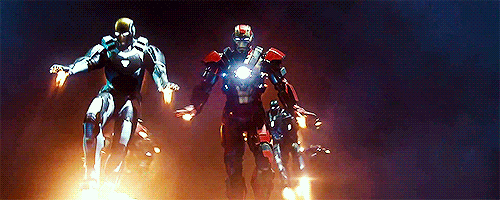
Iron Man 3 still holds up as one of the MCU’s strongest screenplays. It’s their first (and one of their only) real character study of a superhero, and the psychology behind being one. Tony Stark suffers from PTSD and struggles to understand his relationship with Iron Man. He is forced to contend with human issues and find what it is that truly makes him a hero. It’s also a movie chock full of incredible action set pieces- the Air Force One scene still holding up as one of my favourites- and wickedly funny dialogue. It continues to be my most satisfying re-watch out of the MCU.
2. Black Panther
Directed by Ryan Coogler

Marvel’s best villain, best score, best production design, and best picture candidate. It’s the movie that forced Hollywood to take them seriously. Ryan Coogler showed the world that he can perform even within a studio system that had largely been criticised for being too overbearing. The world may have always known that Black Panther existed, but Coogler showed us why he matters so much. The story is the MCU’s most inspiring yet. Killmonger forces not just T'Challa, but every audience member to consider his motivations seriously. It shows humanity that heroism doesn’t come from superficial acts, but from overcoming our own flaws and learning hard lessons from our history.
3. Thor: Ragnarok
Directed by Taika Waititi
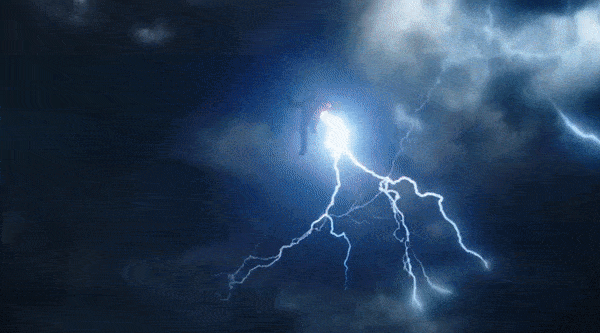
In letting Taika Waititi have free reign over Ragnarok, Marvel is given their most unique film yet. The movie feels very much like Waititi’s own vision, chock full of his signature wit and charm. And its within this vision that we finally see Chris Hemsworth come into his own as Thor. Finally at ease, he’s allowed to be funny, and absurd, and play the emotional scenes without any melodrama. Waititi really makes the character dynamics in this film memorable, introducing us to the Grandmaster and Valkyrie, and fleshing out Banner and Loki. It’s a cast that charms us enough to consider staying with the MCU and seeing where they go.
4. Captain America: The Winter Soldier
Directed by Anthony and Joe Russo
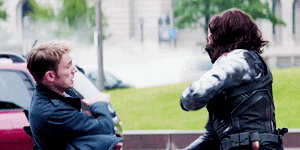
Chris Evans finally comes into his own as Captain America, as Winter Soldier gives him a captivating character arc to work through. Steve Rogers is placed in a conflict that makes him question his own motivations. The morality that he stands for is in direct opposition to the authority he serves, leaving him to question what it means to be Captain America. We also see him learn from his relationships with the supporting cast- with a franchise best portrayal of Nick Fury and Black Widow and a particularly strong introduction of Falcon. The Russos create something truly remarkable by taking a character that has been criticized for being too traditional and show him learn and change significantly. But in addition to all this they direct what is easily the MCU’s best pure action movie yet, showcasing the franchise’s best car chase (Fury vs Cops) and its best fight scene (THAT knife scene).
5. Avengers: Endgame
Directed by Anthony and Joe Russo
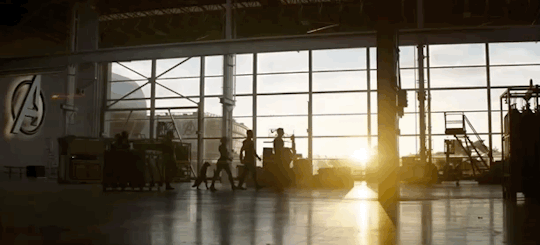
Stunning, momentous and joyous, Endgame is the theatrical experience that Marvel has spent over 10 years honing to perfection. Just one year after Infinity War, the MCU brings together their iconic, colossal cast for their grandest, most ambitious adventure yet. And while Endgame is chock-full of some stunning action sequences and gleeful references, it carries a genuine heart to it. These heroes struggle with PTSD from the events of Infinity War. We see them at their very lowest, and watch their desperation mount and grow to determination. This epic struggle is what has made superheroes so compelling for so many years. By breaking these characters down, the Russos show us just what makes them great. We’ve witnessed writers, directors and certainly the actors take these characters on journeys that have seemed at times thrilling, at time out of touch, but in Endgame, they’re at their very best. The moments of reprieve in the action where we simply sit with them to listen in on their banter are the best. Building to it’s inevitably emotional ending, Endgame winds up being one of the most wholly cathartic experience I have had with a film.
6. Guardians of the Galaxy
Directed by James Gunn

At the time of it’s release, Guardians was the franchise’s best-looking movie yet, and it still holds up. The slick space opera designs set to the now iconic soundtrack made the first Guardians an aesthetic marvel. It’s the substance that comes with this that makes the movie one of the MCU’s best. The ragtag group are misfits who find their purpose by banding together, and while the sequel may have drawn this out to nauseating lengths, the first movie made it succinctly effective. It found the right balance of humour and sentiment, endearing us to a cast of characters that seemed too obscure to be popular- and guaran-damn-teeing that Marvel can do whatever the hell it pleases moving forward.
7. Avengers: Infinity War
Directed by Anthony and Joe Russo

To handle ten years of storytelling and world building and bring it to such a satisfying crescendo is commendable. The Russo brothers handle each character well- each new introduction is a pleasing moment of familiarity and excitement to the fans that have stuck with this franchise. It’s a perfect match to the comic book format. And ultimately Infinity War is as good as any major comic book event. A chance to see our favourite characters interact with each other with conceivable motivations, and face a threat that is alarmingly critical. Its in this respect that Infinity War outshines its predecessors. For the first time, the Avengers face real emotional consequences if they fail. The Russo’s pull no punches to make this clear and despite a fair amount of signature MCU levity, Infinity War winds up being their darkest film yet.
8. The Avengers
Directed by Joss Whedon
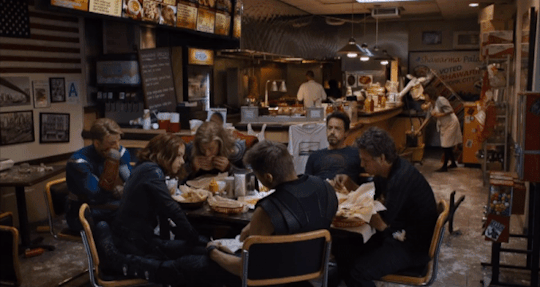
There’s no questioning the milestone achievement that The Avengers accomplished. As a superhero ensemble, it never once feels congested or jarring-something that most blockbusters consistently suffer from. Instead the protagonists are given clear goals, and their obstacles make real sense. Their hostility towards each other stems from their innate character flaws that they need to address to face the true antagonist in Loki. It highlights what Marvel does so well- offer us adventures that don’t tie up all their loose ends but rather leave them dangling to set up more ambitious stories.
9. Spiderman: Homecoming
Directed by Jon Watts

I’ve long considered Spider-Man an uninteresting superhero, so it is highly commendable that Homecoming manages to change that. We skip the origin story and meet a Peter Parker that is inexperienced and has a lot of growing up to do. He contends with Michael Keaton’s Vulture- a villain that is simultaneously charismatic, intimidating, and relatable. Supported by what is probably the best supporting cast in any MCU film. Martin Starr, Hannibal Burress, Zendaya, Jacob Batalon, Jon Favreau and Marisa Tomei flesh out Spidey’s own universe of Queens- wholly believable and charming.
10. Captain America: Civil War
Directed by Anthony and Joe Russo
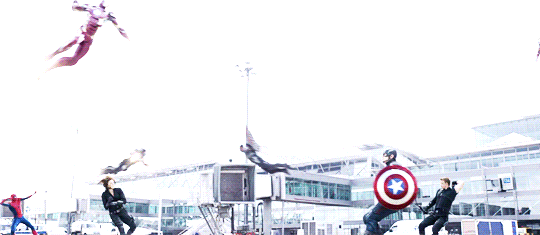
In all respects, this should have been the second Avengers film. The Russo brothers do what Joss Whedon couldn’t. They show these characters change and clarify their motivations based on the 8 years that we’ve been watching them. They introduce new characters like Spider-Man and Black Panther in seamless fashion. They provide exciting action set pieces and compelling moments of drama. The payoff at the end truly shows us how much of a battering these heroes take- emotionally and physically. We see their vulnerability more clearly than any other MCU film, forcing us to address the question that they can’t keep doing this forever.
11. Captain Marvel
Directed by Anna Boden and Ryan Fleck
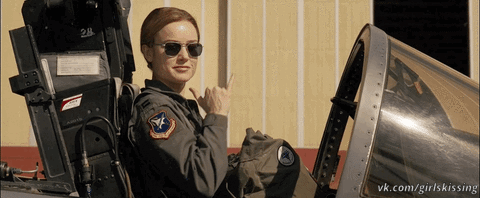
The biggest issue that this movie suffers from is that it seems very episodic to a larger MCU. Its hard to get around this though, with it’s release date being less than 2 months away from Endgame. It feels like there are some key world building details that had to be gotten across. Had this not been the case, perhaps they could have explored Carol’s character a bit more. She does seem interesting, and Brie Larson does an expectedly great job, but it seems like we’re only getting a taste of a much larger character study. From what we see though, it is refreshing to see a female character who simply goes out and kicks ass without ever being sexualised, even in terms of costume design. The highlight of the film though, is undoubtedly Samuel L. Jackson’s incredible portrayal of a young Nick Fury, through the most magical of magic tricks in VFX.
12. Iron Man
Directed by Jon Favreau

While I do feel like the movie has lost some of it’s lustre since it’s release, there’s no denying that Jon Favreau achieved something remarkable with Iron Man. Forever considered one of Marvel’s B-characters, Favreau brings Tony Stark into a modern era and instantly relevant setting. This is obviously due in large part to his gamble of casting the debilitated Robert Downey Jr. in the lead. Downey Jr. pays off in spades, revitalising his career and sadly typecasting himself forever with a roguishly charming performance.
13. Doctor Strange
Directed Scott Derrickson

Doctor Strange is proof of the amazing world-building prowess the MCU has. They introduce key elements to the universe that seem incredibly important, without ever overwhelming the story. Benedict Cumberbatch puts on his best American accent yet and capably sells Stephen Strange as one of the MCU’s more level-headed heroes. The rich mythos of Doctor Strange fits immediately into the greater MCU framework while telling it’s own compelling narrative culminating in my favourite climax to any MCU film- “Dormammu, I’ve come to bargain.”
14. Spider-Man: Far From Home
Directed by Jon Watts
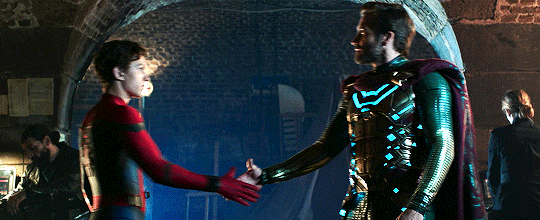
The real standout from this film is Jake Gyllenhaal with his pitch-perfect performance as Quentin Beck/Mysterio. He threads that line of MCU humour extremely well, but also manages to come off as wholly and realistically threatening when he needs to. Far From Home had the tough task of following the monumental Endgame, but it fulfills its purpose of truly setting the tone for the future. A lot rests on Peter Parker’s shoulders and Far From Home shows him having to deal with it responsibly, maturing and growing to fill a greater role in the MCU.
15. Ant-Man
Directed by Peyton Reed

If you ignore the fact that this movie was almost directed by Edgar Wright and how amazing that could have been, Ant-Man still delivers as a very entertaining movie and one of the franchises strongest origin stories. Scott Lang is instantly the MCU’s most relatable character- not a god, not a spy, just a thief with no powers and no resources (initially). And there is no one who could have played this character better than Paul Rudd. Bringing his signature charm and impeccable comedic timing to the franchise is a breath of fresh air and a brand-new dynamic.
16. Captain America: The First Avenger
Directed by Joe Johnston
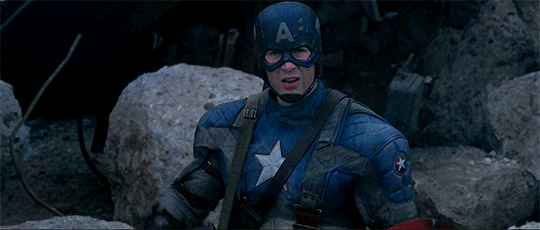
Ultimately my biggest problem with Captain America has always been his origin story, so I have some natural issues with this film. It is also bogged down with some cliched romantic drama between Steve and Peggy which takes away from its otherwise engrossing plot. Hugo Weaving proves to be an effective Red Skull, showing us a deeply disturbing quest for power. The movie excels in its WW2 setting, laying down real consequences and motives behind Captain America’s heroism. It takes a few movies for Chris Evans to settle into the role, but this is a strong start.
17. Iron Man 2.
Directed by Jon Favreau
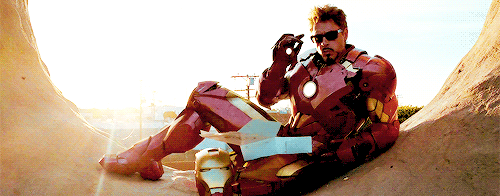
Iron Man 2 consistently threads the line of poignant storytelling. Ivan Vanko’s vengeful motives, Tony Stark’s descent into alcoholism and the nature of war profiteering. It’s especially unfortunate then that the movie gets bogged down with a persistent need for levity. More than any other film in MCU, the humour in Iron Man 2 seems particularly cumbersome- taking away from what would surely be strong performances from Mickey Rourke and Sam Rockwell. As a result, we’re left with villains who don’t seem to be a threat at all- mere caricatures for Iron Man to dispatch without ever really pondering their motivations.
18. Ant-Man and the Wasp
Directed by Peyton Reed
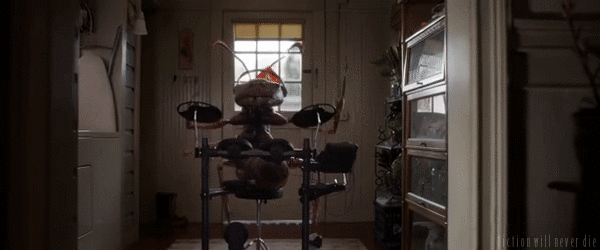
My initial reaction to this movie was pretty positive, but given time I realise it’s totally forgettable. While it does feature some integral world building to the larger MCU, there’s very little done to explore some of their characters, particularly the Pym/van Dynes. There are still a lot of great aspects, including some clever action set pieces that explore Ant-Man’s powers more. Scott’s relationship with Cassie is expanded on and Paul Rudd and Abby Ryder Fortson do a great job selling this, making it seem truly endearing without ever being corny. Also Randall Park is in it and he might be the greatest actor of his generation.
19. Guardians of the Galaxy Vol. 2
Directed by James Gunn
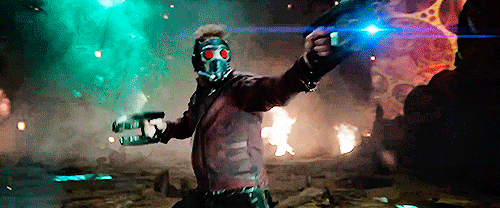
More of the same, but not nearly as fresh is what Guardians 2 serves up. It rehashes a lot of its predecessors joke formulas, action montages and even the basic emotional tone. It’s hard for any of this to seem anything other than repetitive and I’m left wanting these characters to go on real adventures rather than wallow in their own angst. Without offering any new developments to these characters and a rather uninteresting plot, the movie is another totally dismissible filler episode in the MCU.
20. Thor
Directed by Kenneth Branagh

It’s really baffling that with as big of a name as Kenneth Branagh attached to it, Thor winds up being one of the MCU’s most poorly directed films. Poorly constructed shots framed on a dutch tilt and coloured with a gaudy high contrast palette make this movie a downright eyesore. It’s especially unfortunate because it’s got some great moments of storytelling in it. While the first three quarters of the movie seem tedious, it pays off in the last 30 minutes- exposing a complex family drama that drives most of the film. While Chris Hemsworth took a few films to polish his acting chops, Tom Hiddleston and Anthony Hopkins provide strong performances to really sell their characters and make us care.
21. The Incredible Hulk
Directed by Louis Leterrier
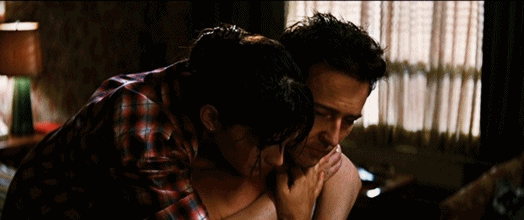
This movie has easily become the sore thumb in Marvel’s formula. It seems entirely different from the rest of the movies. This is due in large part I believe to make it similar to the original TV series. None of this is a good thing. The movie has a largely meandering plotline, with no sensible character development. Bruce Banner goes back and forth between being tortured by the Hulk and accepting him. In a world populated by poor villains, Tim Roth’s Abomination might be the worst one. At no point do his motivations make sense or seem clear at all.
22. Avengers: Age of Ultron
Directed by Joss Whedon

It seems like Joss Whedon decided to make a sequel to The Avengers without taking into consideration the four other movies that came out after it. Ignoring most of the character development and brushing aside key plot points, Whedon instead tries to explore their team dynamic by sewing seeds of hostility and testing them against a new villain. However, as good as James Spader is, Ultron never feels like a real threat. The real antagonist for the Avengers winds up being themselves, constantly bickering over right and wrong- and while this isn’t necessarily bad, Civil War would do a much better job of this just a year later. This makes Age of Ultron a dispensable entry in the MCU, and Whedon’s extremely poor handling of Natasha and Bruce’s relationship make it an arduous rewatch.
23. Thor: The Dark World
Directed by Alan Taylor
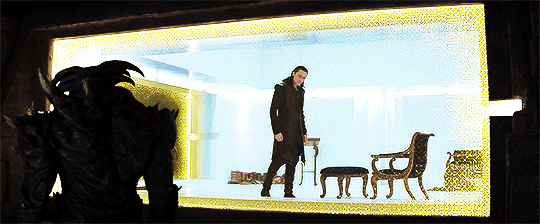
The Dark World suffers from some bizarre shifts in tone and horribly forced humour. They reduce Jane Foster and Thor’s relationship to a cliched romantic comedy and then use it to add unnecessary comedy to the family dynamic established in the first Thor. Even the performances seem poor here- as if the actors never truly felt comfortable in their role. They posture and exaggerate to sell a script that offers them very little to work with. With a caricature of an evil villain and a generic McGuffin to chase, The Dark World is everything you could criticize the MCU of, rolled into one movie.
#MCU#marvel#marvel studios#marvel cinematic universe#marvel comics#stan lee#excelsior#film#film review#film list#yyc#yyc blogger#yyc film#iron man#captain america#thor#hulk#captain marvel#black panther#spider man#ant man#doctor strange#black widow#guardians of the galaxy#the winter soldier#avengers
9 notes
·
View notes
Text
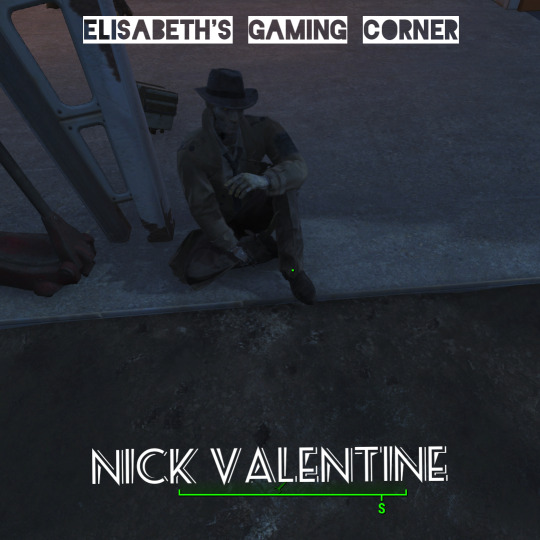
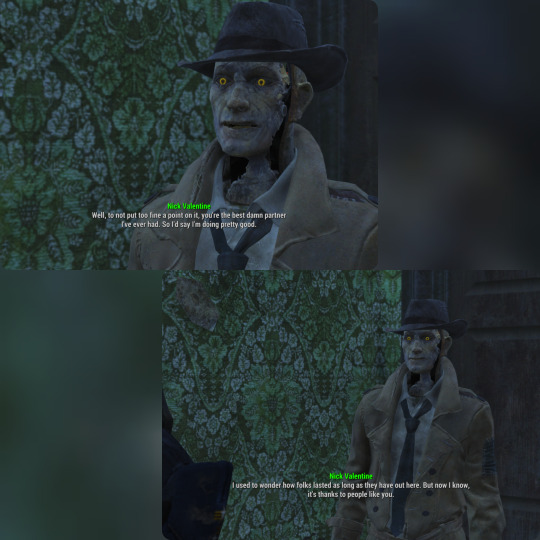
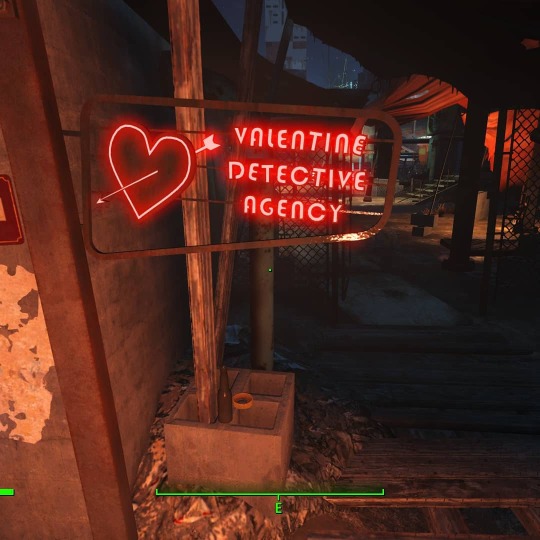
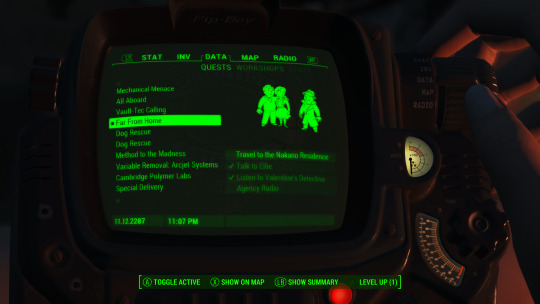
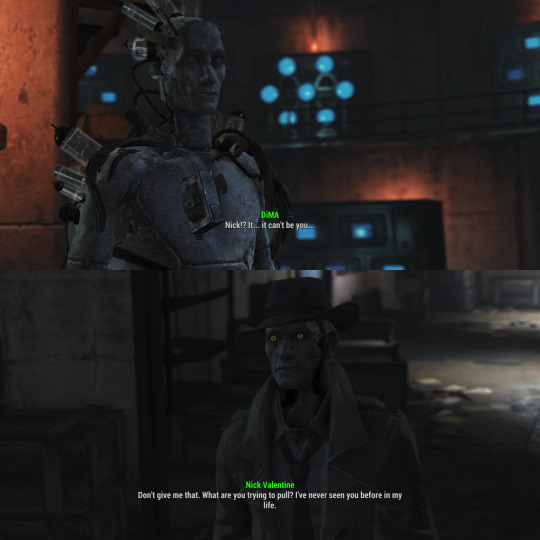
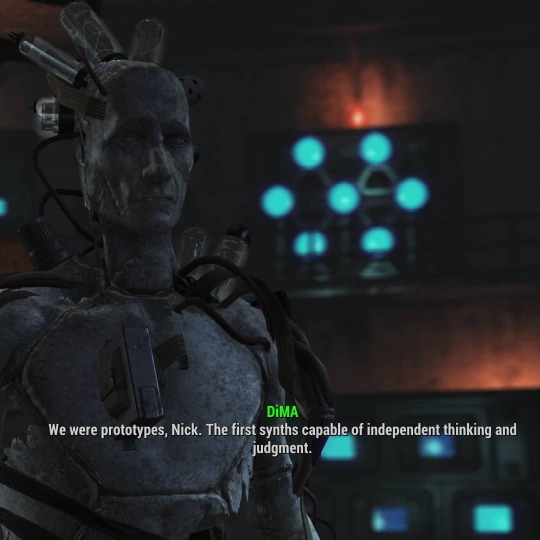
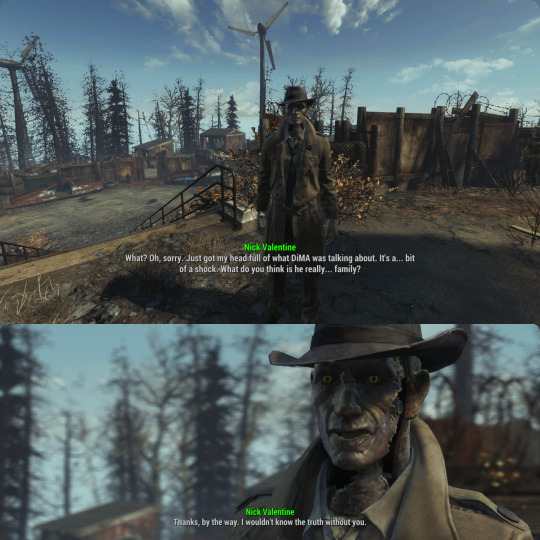
In my longer, lore-related posts, I’ve covered a few different things, including the history of Lord Raiden in Mortal Kombat, biographies of Dorian Pavus and Maeveris Tilani from the Dragon Age universe, and the history of the Qunari people and culture, also from Dragon Age. But so far I haven’t touched anything or anyone from Fallout, and so today I’m going to remedy that.
The very first Fallout game I ever played was 4 (I know, I know, I did go back and play 3 and New Vegas, don’t worry fellow fans) and as such some of my strongest ties are with that particular game. And while one character in particular isn’t the first companion you encounter, he quickly became my favourite (and I also continually curse Todd Howard for not making him romanceable!).
Nick Valentine has an interesting history. His memories and personality come from a pre-war detective of the same name who, after the traumatic death of his fiancée Jennifer Lands at the hands of infamous mobster Eddie Winter, submits himself to an experiment at the Commonwealth Institute of Technology (the remnants of which later became the Institute) that scanned his brain as part of treatment for PTSD. What happened to the original Nick is unknown, but whether he died during the initial nuclear bombing in 2077 or died sometime after, he is long gone by the time the events of Fallout 4 takes place in 2287. The Nick we get to meet in game is one of two prototype synths leftover from when the Institute was experimenting with expanding and furthering their synth program. His “brother” DiMA’s AI was allowed to develop a personality naturally, while Institute scientists attempted to implant the memories and personality of the original Nick into the prototype that would become our in-game companion. Since it was an unknown procedure at the time, the scientists had issues with the transplantation, and while sometimes it would seem to take, other times it wouldn’t. In observing what seemed to be the torture of his brother, DiMA escaped the Institute with Nick in tow to spare him further abuse. Unfortunately, after their escape, the personality and memories took root a little too hard, synth Nick thought he was really the original Nick, and in his confusion he attacked DiMA and forced his brother to knock him out and leave him.
While later on, the population of the Commonwealth would be extremely suspicious of synths and anything Institute-related, at this point in time they didn’t know much and so he was greeted with a mix of awe, curiousity, and a little fear at the unknown. In talking with Nick, he’ll tell the Sole Survivor of a kid he befriended known only as Jim, and that he was the first human contact he had post-Institute. In another story, he’ll tell of how he was permitted in Diamond City (a settlement known for its anti-synth and anti-ghoul stance) by rescuing the Mayor’s kidnapped daughter. Though he didn’t realise who she was when he stumbled upon her kidnappers, and despite not having a weapon, he was able to bluff his way into getting the abductors to leave by pretending to activate a bomb inside himself and just saying “beep” repeatedly as if in countdown. One he returned the daughter to the Mayor, he gave him a house as thanks and for the first time since he woke up, he had a sense of stability. He initially worked around town as a handyman, but because of his detective skills that kept being brought up and used, over time he stopped fixing things and became a detective full time.
It was one of his cases that lead to him meeting the Sole Survivor in an old Vault. In following a lead on a woman named Darla who was believed to be kidnapped – spoiler, she was not, she ran away with her gangster boyfriend – he was captured by Skinny Malone’s gang and imprisoned in the hideout they’d made out of Vault 114 nestled in the Park Street subway station. The Sole Survivor breaks him out and escapes with him, and upon leaving the Vault and meeting back up at his office, they reveal that they need him to help them find their missing son. Nick will assist them in their endevour, interviewing them and revealing the identity of the person who shot their spouse and stole their son, taking them to the house of known mercenary Conrad Kellogg and then summoning Dogmeat to help the Sole Survivor track him down (if they aren’t already travelling with Dogmeat). After the Sole Survivor confronts Kellogg at Fort Hagen, he will lead them to Doctor Amari and also volunteer to host Kellogg’s memories so that the fate of the Sole Survivor’s son can be ascertained and confirmed.
His personal quest, called “Long Time Coming”, involves finishing the old case that the original Nick had been involved in regarding the gangster Eddie Winter. After tracking down all 10 holotapes involving Winter, it reveals the code that will work on the keypad outside Winter’s bunker in Andrew Station. Upon arriving at the bunker and opening it, instead of being empty, the bunker will be revealed to be inhabited by Winter himself … ghoulified, of course, but alive nonetheless. Nick’s affinity will increase if the Sole Survivor allows him to kill Eddie instead of killing him themselves. After the shootout is over, Nick will retrace his steps to a road outside a run-down sandwich shop, the place where Jennifer Lands was murdered over 200 years before. While not the original Nick, he’s given some closure by wrapping up one of old Nick’s “loose ends”. He still has some issues with his identity, with knowing who he is separate from the pre-war detective, but the Sole Survivor has a chance to reassure him that he is his own man apart from the old Nick.
While not required, if allowed to accompany the Sole Survivor in the DLC “Far Harbor”, he has a significant emotional importance to the questline. The beginning involves following up on a message from a former associate of Nick’s, Kenji Nakano, whose daughter has run off and he wants he found and retuned. All signs point to the island of Far Harbor, and once Nick and the Sole Survivor arrive, they are pointed in the direction of Acadia, a settlement founded and run entirely by synths who escaped the Institute. Some of them refused a memory wipe offered by the Railroad, others had a memory wipe that didn’t take well and suffer side effects from it, and others still figured out they were synth and are trying to come to terms with who and what they are and their identity. The leader of the settlement is DiMA, Nick’s brother, who immediately recognises Nick on sight but who Nick doesn’t remember. During the course of the main quest, the Sole Survivor is able to find proof of their relationship, and Nick accepts the truth and even starts to form a bond with DiMA by talking with him every time they enter Acadia. While he won’t approve if the Sole Survivor doesn’t hold DiMA accountable for murder, he seems to comes to terms with the decision and it doesn’t seem to affect his relationship with his brother too much … though this could also just be something the devs overlooked.
While outwardly he may just look like an old synth that’s starting to fall apart, Nick is full of charisma and personality and has an amazingly witty and sarcastic sense of humour. Especially when taken on board the Prydwen and surrounded by Brotherhood soldiers who hate synths and everything associated with the Institute, he won’t hold back if someone outright insults him. Sometimes it’s just a simple deflection … for instance, if a Brotherhood soldier mutters, “Abomination” then Nick will respond with, “Well, good afternoon to you, too.” He’s not afraid to get a little more aggressive when told, “You disgust me” and he’ll reply with, “Not much of a sight yourself.” He’ll even point out their hypocrisy when told, “No machine should have free will”, he’ll say, “Why? You jealous you had to turn yours in?” I also personally like the response to, “Don’t get any ideas, synth” when he’ll reply, “From you folks? I wouldn’t know where to look.” That humour helps to cover up his insecurities related to his conflicted feelings about his identity and who he is, and I wish that an in-game romance would help reassure him of who he is and his worth, similar to the way a romantic relationship between the Sole Survivor and John Hancock unfolds and develops. Unfortunately, Todd Howard and the Bethesda team denied us this chance, however mod authors have given us a chance to play it out with cut audio files spliced together to form the dialogue. Even without the mod, however, Nick always becomes one of my best friends, a voice of reason and a guiding hand to a Sole Survivor who so desperately needs it, but who will also call them out if they do something he disapproves of. Everyone needs a friend like Nick, and if you haven’t found one yet, I hope you will soon. <3
#beauties and headcanons#elisabeths gaming corner#fallout#fallout 4#nick valentine#long time coming#far habor#dima
14 notes
·
View notes
Text
The Irishman (Or Oldfellas)
Let’s just get this out of the way first. DeNiro’s not Irish. Why would you make a movie called The Irishman about an Irish man’s ascension in the Italian mob, in which him being Irish (while not a crucial plot point) does come up a number of times throughout the film, with a lead actor who is not only not Irish but so obviously and blatantly Italian?! The matter is worse for putting fellow Italian-American Al Pacino in the role of non-Italian Jimmy Hoffa, especially since it is pretty crucial to the plot that he is not Italian.
Great. Now that rant is over. Let’s start a new one. Holy fuck this is a long movie. At least epic films from times past gave you the courtesy of an intermission. Yes, no one was holding a gun to my head and telling me I couldn’t get up to pee, but it’s also a little hubristic of Scorcese to assume that this is such a dominant work of art it need not be interrupted. At the very just breaking this up into parts like in Tarantino’s The Hateful Eight would have been appreciated.
Ok, I think I’m just about done ranting, which is good because despite what you see above, I really liked this film. While the obvious comparison to draw is to Scorcese’s great mob epics like Casino, Goodfellas, The Departed, in many ways the film fits more in line with his most recent picture, 2016’s Catholic guilt epic Silence. Yes, The Irishman features plenty of violence and even a trip to the movie-mobster-favorite the Copacabana, but this movie doesn’t do much to add to the myth that the mob life is wonderful. There’s little glitz and glammor, no drugs, no big parties. In fact, the main mob boss, Russell Bufalino (played in an incredibly understated fashion by the usually boisterous Joe Pesce) won’t allow people to smoke in front of him, and Pacino’s Hoffa can’t stand the sight of alcohol. Harvey Keitel’s brief appearance on-screen as an aloof, no-nonsense mob boss whose power extends beyond that of Pesce’s grants a reminder of the sort of aloof, mysterious, and powerful men who usually populate and dominate such films and our memories with their devotion to their family and mob-world principles (Brando in the Godfather most notably) but are generally absent here. Pesce’s character, above all, is concerned or the business.
And the ultimate demythologizing comes with the inspired decision to introduce many of the side characters (who are real people) with captions giving us their name as well as how and when they die. The captions often contain brutal and gory details that we will never see on-screen. As an audience, we love to relish in the excitement of mobster violence (think of the end of Bonnie & Clyde or Sonny’s death in The Godfather), but Scorcese denies us that perverse satisfaction, forcing us to appreciate the meaninglessness of the violence.
And so the film largely follows the life of DeNiro’s Frank Sheeran, a WWII vet and now truck driver, as he first becomes associated with Pesce’s mob business and his subsequent ascension among its ranks. It’s notable that Frank is a vet, and a combat vet at that. While this movie doesn’t really focus on PTSD, it’s clear that the war has done a number of Frank’s moral fortitude. He’s a man who will take orders without question and always respect the chain of command. Why should he feel any more guilty taking out a loud-mouthed mobster than two Nazis whom he was just watched dig their own graves? Both came as orders from on high, so what choice did he have?
The main conflicts of the film (of which there are really only two) come, then, when Frank feels unsure of where to place his loyalty. For much of the film this conflict takes the form of Frank playing the middle man between the Joe Pesce’s mob and the millionaire president of the trucking union and long-time friend of the mob, Jimmy Hoffa. He’s played to perfect effect by Al Pacino as a vain and egomaniacal man, not unlike a certain current president, that still manages to elicit genuine sympathy as he struggles to maintain control of his union.
It’s a testament to this film’s script and structure that the conflict of these two men to control Frank’s will develops so naturally that it never feels overly dramatic. That the climax occurs during an event designed to honor and appreciate Frank heightens the tragedy as Frank will only be able to return the favor in one direction. And, in all, the three hours it takes to reach this conflict’s resolution feels earned. Along the way, I for one enjoyed the history lesson – or at least some aspects of history and other unsubstantiated claims about history (the film is based on Frank’s own account which many have determined to be untrustworthy.) Still, I had no idea who Jimmy Hoffa was or that there were claims that JFK (through his father Joe) had ties to the mafia, and it was just fascinating to learn of the deep ties between unions and the mob. And had the film stopped here at the three hour mark, it would have been a wonderfully told story , a script full of engrossing conversations where on the surface nothing is said but in reality lives are at stake, and a tour de force of acting for its three main leads (DeNiro, Pesce, and Pacino), but would feel a little inconsequential in terms of its impact.
But it doesn’t end at the 3 hour mark. It keeps going in an almost Return of the King fashion for another half hour. And it’s in that half hour that the film is at its most ambitious. It turns all of what we saw before into a morality play. Frank has survived his life with the mob, but everyone else he knew from the mob is dead. We’re reminded by contrast of the countless side characters the movie introduces at the same time as it tells us how they will die. So like a soldier returned from war, what is Frank who has lived his life according to orders, a nervous and indecisive man who can in the best of times do little more than stumble through a sentence, supposed to do now? To whom does he give loyalty now? Should he try giving to God? He tries, but we sense that to do so would be a betrayal, an admittance that his life was wasted and that his loyalty was not well spent? It’s here where themes from Silence become prominent. He desperately fears the end of his life, maintaining his soldier status even in his nursing home, but recognizes and struggles with the pain that in the eyes of the time and the world, what was so important to him was done without meaning.
These are interesting questions, but ones that couldn’t help but feel rather tacked on. In particular, Frank’s troubled relationship with his daughter was a recurring motif that never really landed as the movie was far more interested in his relationship with the mob and Hoffa. Or maybe I was just more interested in Hoffa and the mob. But while the last 30 minutes don’t reach the heights that the film aspires to, it does do it’s job in elevating this film beyond the level of just another mobster movie. Scorcese’s getting up there in age, DeNiro, Pesce, and Pacino too and his question of a life lived well is universal. The film therefore invites us to take stock of our loyalties and question whether those loyalties will still have their meaning at the end of our days.
***1/4
(Three and a fourth stars out of four)
Capsule Review: It’s Goodfellas but re-made by a director with so much Catholic guilt he would be crazy enough to do filmed version of Silence.
1 note
·
View note
Text
Watch The Marvel Movies In Order
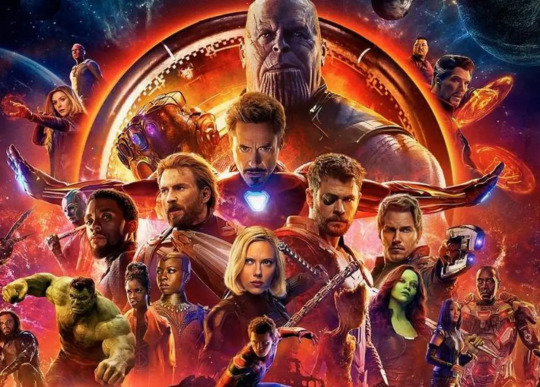
AVENGERS: ENDGAME, opening on April 26, is more than just another Marvel movie. It’s the final film in a story that’s been over a decade in the making, a celebration of everything Marvel Studios has done to date. If you’re like us, a binge-watch of the entire MCU is in order to prepare for the big event. Here’s the big question: How should you watch the Marvel movies in order?
There are two common ways to build a Marvel movies timeline. The first is in release order, kicking off with 2008’s IRON MAN. The second is in chronological Marvel movie order, following the order of events. That means moving CAPTAIN AMERICA: THE FIRST AVENGER to the pole position and shuffling Phase Three’s movies in some interesting ways.
Over on Reddit, however, one smart fan suggested another approach — a thematic structure that may be the best viewing order yet. Here it is, updated for the latest Marvel movie releases.
Captain America: The First Avenger

CAPTAIN AMERICA: THE FIRST AVENGER is something of an extended introduction to the MCU. The bulk of the movie is set in the ’40s, and it introduces viewers to the SSR, which becomes S.H.I.E.L.D. Even the end-credits sequence, which features Nick Fury, is a nice setup for everything that will follow. Want to watch the Marvel movies in order? Start here.
Captain Marvel
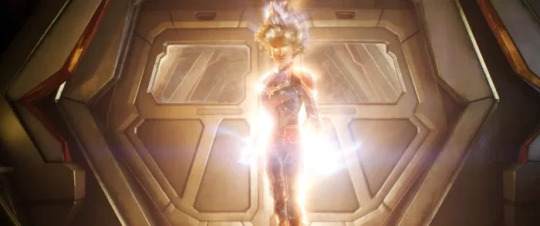
CAPTAIN MARVEL effectively takes the spot formerly held by IRON MAN as the proper kickoff for the entire MCU. The story is primarily set in the mid-’90s and features the first evolution of S.H.I.E.L.D. and an important stage of Nick Fury’s career. The story also sets up the Kree (later seen in GUARDIANS OF THE GALAXY) and, most importantly, deals with an object that becomes significant toward the end of Marvel’s Phase One. As the origin story for Carol Danvers (Brie Larson), this also feels more like a Phase One movie than anything Marvel has done in the past few years. In terms of tone and theme, it sits well in the beginning of the viewing order. Yes, there’s a connection to INFINITY WAR and ENDGAME, but just keep this film’s first post-credits sequence in your back pocket for later.
Iron Man

Although IRON MAN was the first MCU movie, it has more power when placed here. We know who Howard Stark is thanks to THE FIRST AVENGER. Watching his son take his first faltering steps into the “bigger universe” is an effective stage of the MCU movie order. The final scene, with Nick Fury stepping out of the shadows, will take on a subtly different meaning after the events of CAPTAIN MARVEL. Rather than hint at the birth of the MCU, it will become connective tissue linking the first three films together.
Iron Man 2
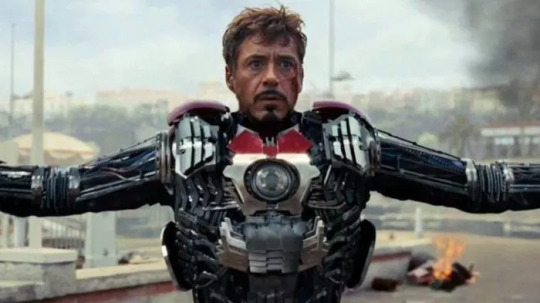
After IRON MAN introduces viewers to the modern-day iteration of S.H.I.E.L.D., the sequel dives deep into that organization. It also features Nick Fury in a far more significant role, allowing viewers to get a sense of just who this figure really is. Meanwhile, the focus on Howard Stark’s legacy continues to draw the narrative threads together. It makes perfect sense to watch IRON MAN 2 at this point.
The Incredible Hulk

This particular adjustment to the viewing order is appropriate — while THE INCREDIBLE HULK actually happens at the same time as IRON MAN 2, the end-credits sequence assumes Stark now has a “consultant” role with S.H.I.E.L.D.
Thor
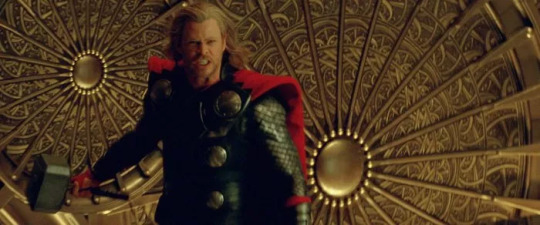
THOR introduces viewers to Asgard and launches a series of stories inspired by events in the Realm Eternal. At the same time, it continues to develop the story of S.H.I.E.L.D., with Coulson and Hawkeye playing important roles.
The Avengers
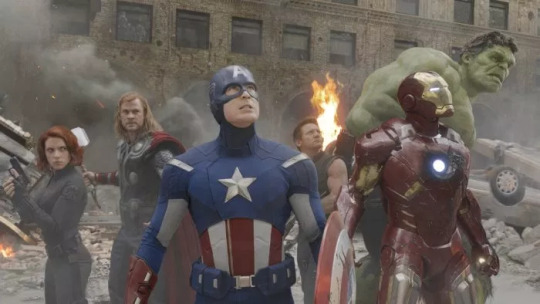
This is a natural fit after the events of THOR, continuing many of that film’s themes and character arcs. Loki returns as a villain; the concept of the Tesseract is explored; and the existence of dangerous alien beings becomes public knowledge when the Chitauri invade New York. There’s also a more subtle detail as this is the first film to really hint that S.H.I.E.L.D. isn’t just “good guys.” THE AVENGERS includes a disturbing sequence in which the World Council orders a nuclear attack on American soil.
Thor: The Dark World
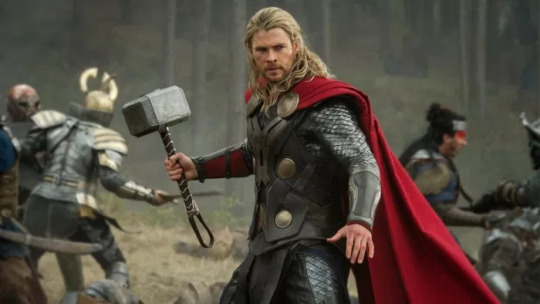
Here’s where the order of events really changes, but for good reason. The last two films have explored the cosmic side of the MCU, and it makes sense to continue that line. Some of the most important themes and ideas — particularly the relationship between Thor and Loki — follow on perfectly from THE AVENGERS. This also introduces the idea of the Infinity Stones, although they’re only partly explained at this point.
Guardians of the Galaxy

Continuing the cosmic focus, GUARDIANS OF THE GALAXY unveils another Infinity Stone. The Collector, introduced in the stinger of THOR: THE DARK WORLD, makes another appearance, tying the two films together. Viewers are left with a strong sense that the Infinity Stones are being brought into play across the universe.
Guardians of the Galaxy Vol. 2

The events of GUARDIANS OF THE GALAXY VOL. 2 are set only a couple of months after the first film, so it makes sense for this to follow straight on. It continues the space-opera style and tone established by the last two films in our Marvel movie order.
Iron Man 3
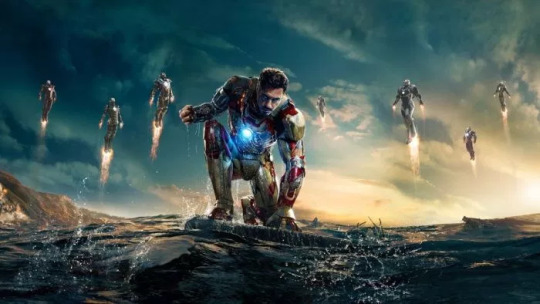
The cosmic diversion is over, and the focus now moves back to Earth, where Tony Stark is dealing with the emotional fallout from THE AVENGERS. The passage of time between the films actually makes Tony’s PTSD feel more significant, while also more making it feel more natural that Stark has had the time to build so many armors.
Captain America: The Winter Soldier
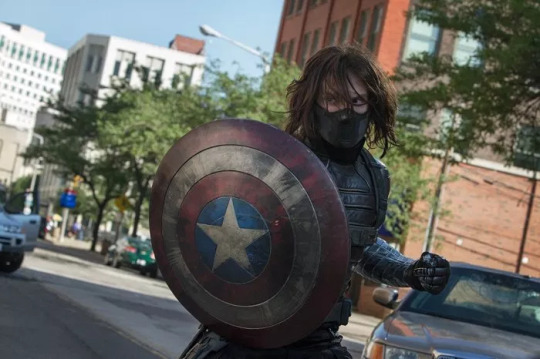
Continuing with the Earthly focus, this movie shows what Captain America is up to. This story could even be happening at the same time as IRON MAN 3, explaining why Cap doesn’t help Tony against the Mandarin and why Stark isn’t on hand to deal with Hydra. Or maybe Cap and Stark are merely still wary of one another at this stage. Perhaps most importantly, placing this film here begins a Falcon arc that will run through the next few movies.
Avengers: Age of Ultron
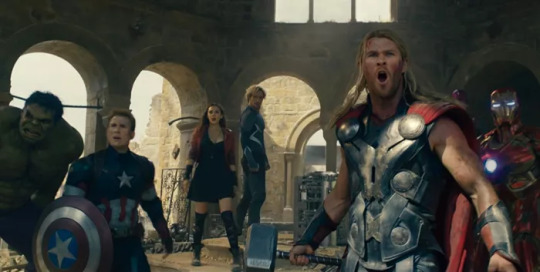
This is another natural fit. The film opens with the Avengers taking down a major Hydra base. In thematic terms, placing this close to IRON MAN 3 makes Tony’s emotional journey feel more immediate and natural. This film also begins to tie the Earth-bound adventures into the cosmic stories, with another Infinity Stone revealed. Thor’s vision establishes a sense of impending threat.
Ant-Man
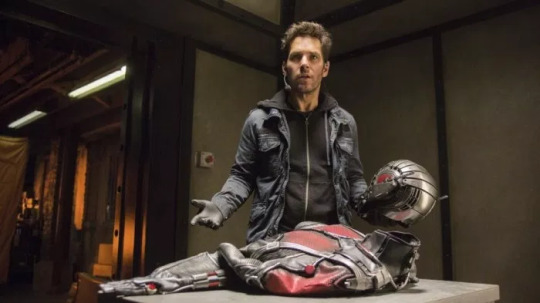
Set in the immediate aftermath of AVENGERS: AGE OF ULTRON, ANT-MAN contains subtle references to the devastation at Sokovia. Placing it here in the lineup makes the Falcon fight carry additional weight, bringing Sam closer to primary character status.
Captain America: Civil War

The Sokovia arc that begun in AVENGERS: AGE OF ULTRON comes to a head in CAPTAIN AMERICA: CIVIL WAR, tearing the Avengers apart. CIVIL WAR acts as the launchpad for the next batch of Earth-bound stories, so they slot in nicely after it. It also follows on perfectly from ANT-MAN’s end-credits scene.
Black Panther

Black Panther was introduced in CIVIL WAR, and this continues his story. It’s appropriate to drop this movie in next, as BLACK PANTHER is set only a week after the Avengers divide, and the Wakandan focus follows on nicely from the end-credits sequence.
Spider-Man: Homecoming
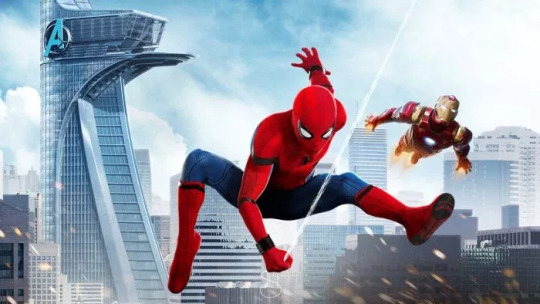
Set two months after CIVIL WAR, SPIDER-MAN: HOMECOMING focuses on Peter Parker. It’s important to note that Tony Stark has been given time to heal a little, so this viewing order makes sense.
Doctor Strange

Placing DOCTOR STRANGE here gives the film real importance as a thematic tie between the MCU’s Earth-bound and cosmic movies. DOCTOR STRANGE introduces the concept of magic and brings the Time Stone into play. The Quantum Realm also plays a subtle role, as Strange glimpses it while being sent careering through the dimensions. Finally, the end-credits scene leads nicely into THOR: RAGNAROK.
Thor: Ragnarok

This film follows on logically from DOCTOR STRANGE. (There’s even a cameo.) The end credits begin the direct buildup to AVENGERS: INFINITY WAR, with the Asgardian refugees intercepted in space by Thanos.
Ant-Man and the Wasp

This is a difficult one to place in this thematic structure. While it returns to the Earth-bound adventures, ANT-MAN AND THE WASP is fantastical and funny. The bulk of the story is set before the events of AVENGERS: INFINITY WAR, so it makes sense to place it here. This particular viewing order does change how the post-credits scene plays, however. Rather than knowing what’s going on, you’re with the same sense of shock and horror felt by Hank Pym or Scott Lang.
Avengers: Infinity War
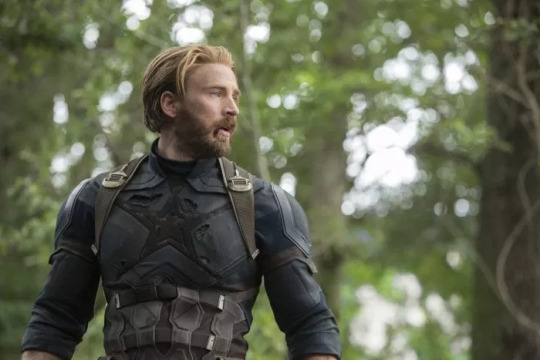
In this order, AVENGERS: INFINITY WAR will be the last thing you watch before AVENGERS: ENDGAME. That works particularly well when you consider that, according to screenwriters Christopher Markus and Stephen McFeely, the snap was originally in ENDGAME. These two films may not be a traditional Parts I and II anymore, but their relationship is so close that it’s better to watch them back to back — just how they were filmed.
---------------------------------------------------------------------------------------------------------
Not really a fan of Superhero Movies, but after watching Captain Marvel last Friday, I was hooked. I’ve decided then to binge-watch all the Marvel Movies so I can catch up before they release the Avengers : Endgame. My only dilemma was, I have no idea what to watch first and so on. I tried to do a little research and I came across with this article. I’ve watched the 1st three movies, and since I’ve already tendered my resignation, I have all the time to finish the remaining movies before the opening of the final story. Yey!!
39 notes
·
View notes
Text
Anne watches MCU: Civil War
Civil War is the logical culmination of the Avengers series thus far and effectively presents the Avengers Initiative as a catastrophic failure.
I like this movie. I like it a lot. I think it does a surprisingly good job with continuity, both logistical and emotional.
I also think that what I took from it is perhaps not what the filmmakers intended, that in fact I probably like it for reasons that were accidental, and that were I deeply invested in these characters and their relationships, I would probably hate it.
I think at this point it works best to look at the Captain America series as a subseries of the Avengers. Both Winter Soldier and Civil War are unavoidably Avengers films as well as Captain America films; they balance an ensemble cast with Steve as the emotional core of the story.
I can see why Thor and Hulk were written out for this film, because the cast is already bursting at the seams and the movie is really long. I do miss Bruce getting to weigh in on the Accords, but Thor didn’t need to be here. Thor is not a citizen of Earth, and this really isn’t his story.
Finally, Bucky Barnes gets some character development. I have wanted to like Bucky up until now but there just hasn’t been much to hold onto; The Winter Soldier is Steve’s story, not Bucky’s, and we get precious little of Steve’s old friend coming through in the present day.
I still hate mind control plots, because you can make a character do absolutely anything and while the character might hold themselves responsible for it, the audience won’t, which makes it great woobie fuel: you get to have the character wrestling with all the guilt and horror of having technically committed terrible acts, but it’s not really their fault, so the audience can feel sorry for them and indulge in all the angst without any of the uncomfortable culpability. Nevertheless, I am happy that Civil War established some parameters around Bucky’s brainwashing and allowed his real self to come through. He’s certainly a more interesting character to me now than he was in Winter Soldier. Had I seen Bucky re-frozen at the end of Winter Soldier, I wouldn’t have felt much about it. Now, I actually kind of care.
But Wanda’s situation, by contrast, is much more grounded and compelling to me than Bucky’s: she actually did do something terrible while trying to do good. Wanda saves Steve, accidentally kills a bunch of civilians in the process… and reacts to that like a normal human being. There is a direct contrast to the way Tony Stark behaves in the first Iron Man movie, and the complete disregard for civilian casualties not just in the character but in the films themselves. This is Marvel’s meta-commentary on its own cinematic history as much as it is establishing continuity for the characters. Wanda reacts with immediate horror and regret, and she doesn’t have to say a word to convey that to us. That is good writing, good acting, and good direction. Now Wanda has to live with what she’s done, and decide who she’s going to be in the world after that, when she can’t change the past or the public’s opinion of her.
Tony and Pepper’s relationship is on the rocks, giving real consequences to the tension we’ve seen in their relationship in the Iron Man trilogy. Whether or not those consequences will stick beyond this movie remains to be seen (assuming I watch further), but it is nonetheless a breath of fresh air to me.
We already know from Iron Man 3 that Tony suffers from PTSD, and in this movie we see him confronted face to face with his responsibility for the events of Ultron. What makes Tony sympathetic in this movie is his very real remorse, and his desire to make amends, expressed in his supporting the Sokovia Accords.
And there are moments when I sympathize with Tony’s perspective, when I don’t find Steve to be in the right. When Steve says that Wanda is “just a kid”—yes, that may technically be true, but you can’t have her fighting in the streets, using her tremendous powers in real battle, and then turn around and say she’s just a kid. You can’t have it both ways. Of course Steve wants to defend Wanda; what happened in Nigeria was an accident. But calling her a kid doesn’t cut it.
Steve is still sympathetic, of course, even when I don’t fully agree with him. This is a Captain America movie and Steve is its emotional core. That he is preoccupied by even the mention of his old friend shows his humanity, as does Peggy Carter’s funeral, which gives an external voice to his convictions—even if it is a bit on the nose.
Who supports the Accords and who refuses makes sense for the most part, though I think this story would be better served by a clearer definition of what constitutes an “enhanced individual.” Steve, Wanda, Bruce, for sure, are enhanced individuals. There’s no question that they possess abilities impossible for most humans. But what about Tony? His powers come from the Iron Man suit—without it, he’s just a guy. Genius billionaire playboy philanthropist—but not superpowered. Then there’s someone like T’Challa, who can be enhanced when he has the powers of the Black Panther, but can also have those powers removed. Clint is just a guy who’s a really good shot—is he an “enhanced individual?” What about Natasha? She’s a highly skilled spy and assassin, sure, but she doesn’t have superpowers. Do the Accords include people with highly specialized training? Do they include anyone who might qualify as a vigilante, powers or no powers?
These questions are never clearly answered in the film. But if we read between the lines, it kind of makes sense that Tony and Rhodey and Natasha would feel less personally threatened by the Accords than Wanda or Steve.
Tony especially feels the least put upon by the Accords, for a few reasons. First, Tony is already a public figure by nature of being a billionaire. He is accustomed to living a very public life, and doesn’t view the Accords as a breach of his privacy. Most importantly, Tony’s wealth has always served as a kind of “do whatever the fuck I want and get away with it badge” (to borrow a line from Transformers). Even with the Accords in place, we still see Tony calling the shots, and when Cap goes rogue, Tony sees it as a “PR nightmare,” an inconvenience, but still a problem he can make go away.
A lot of character beats in this movie really work for me. I love Natasha’s assessment that “We played this wrong,” not necessarily changing her position but admitting to a tactical and interpersonal failure. I love her calling Tony out for putting his ego before everything—and the fact that it actually gets through to him for a bit is gratifying. I even enjoyed T’Challa trying to avenge his father, though I think I appreciated that a lot more for having seen Black Panther first.
There are a couple of character decisions that don’t track for me. I don’t think the film does a good enough job (or like… a job) of establishing why Clint would side against Natasha when she is his closest friend in the Avengers. I also think it’s strange that Natasha thinks Bruce would side against them if he were there. Bruce hates himself. He thinks of himself as a dangerous monster; that’s the whole reason he ran. He would absolutely be on the side of the Accords.
I have no opinions on the way Vision sides because Vision doesn’t feel like a character to me or like he really serves any purpose in these movies beyond being a walking plot device. I know he’s got an Infinity stone powering his brain and that’s going to matter in the next movie, but as a character everything about him smacks of “He’s here because he’s in the comics.”
The scene in which Spider-man is introduced was so out of the blue that I literally checked my phone to make sure I hadn’t accidentally started casting a different movie. I guess he’s mostly here to provide Tony some perspective on being an actually enhanced human: “When you can do the things I do, and you don’t, and the bad things happen, it’s your fault.” Peter Parker is the most innocent vigilante! And now both sides have a teenager. He does have some great dialogue with Tony and I can’t really be unhappy he’s here because he’s just too damn likable.
But nothing tops the Steve/Sharon kiss for being out of the blue. Came from nowhere and went back there fast. I have no idea why that was here, except that Steve is the hero and The Formula demands that he kiss a girl at some point. Peggy’s dead so her niece will do I guess. Anyway, it was bad, but brief enough to ignore.
And nothing drives home that this movie is not in any way a standalone like the appearance of Ant-Man. I actually laughed out loud when he appeared because I was imagining what this random cameo would look like if I hadn’t just watched his origin story and it was hilarious.
The big full-team battle was clearly the scene that was supposed to be the most fun to watch—which in itself is a bit strange. Clint and Natasha, in particular, seem not even to take the fight seriously. And in a story all about the fallout caused by superhero vigilantes, one would think those superheroes fighting each other in a huge group would cause even more damage. But it doesn’t, because they just super conveniently have their big battle on an empty airport tarmac, which was so funny. I assume we’re meant to think the place was evacuated but a part of me just really wants to say there were people in that air traffic control tower they knocked over.
Avengers 2.75: The Avengers vs. Delta Airlines.
The most truly stupid part was the ending. I had to go ask red where the fuck Steve knowing about Tony’s parents was set up, and apparently it was a blink-and-you’ll miss it moment in Winter Soldier. I sure didn’t remember it, so that came way out of left field for me and seemed purely contrived to make sure Tony’s change of heart would be short-lived.
But goofiness aside, there was a lot about this movie that worked for me. The focus on relationships surprised me, frankly. I was expecting a stupid, contrived battle of egos between Tony and Steve, and what i got was actually a fairly nuanced (for Marvel) story that gives real consequences to the actions of the Avengers thus far, brings to a head the tension that has been building between Tony and Steve from the minute go, and very effectively conveys the Avengers Initiative as a failed experiment.
The moral of Civil War, intentional or not, is superheroes can’t work together.
Because the Avengers are not a team. Not really. They're a bunch of lone superheroes trying to work together, succeeding for brief moments, but overall failing to build a team dynamic and Civil War is where it all falls apart.
It really put into perspective a lot of what was bugging me about Age of Ultron, which I couldn’t really put my finger on until I ran across this post and it all fell into place for me. I never bought that they were all friends or had built any deep bonds. Tony going rogue wasn't a betrayal of trust so much as it was just the clearest indicator that there wasn't any to begin with.
This movie raises questions about loyalty... and when it comes to Steve Rogers, the answers are pretty unambiguous. Steve Rogers is a powerfully loyal person who sticks by his people no matter what, and never was it more clear that the Avengers are not his people. Bucky is his people. Sam is his people. Peggy is his people. These are Steve’s friends. Steve Rogers is the first Avenger. He is also the first to jump ship when the Avengers fail to align with his principles. That’s who Steve is, and this movie also serves as a very effective character study. Despite its proximity to Ultron, there’s a reason this is a Captain America movie first.
If we’re supposed to see Civil War as a family torn apart, it fails, because this series never sold us on that family dynamic in the first place. From the start, every Avengers film has been about driving conflict between the characters, especially Steve and Tony. You cannot destroy what was never there, and if Civil War is meant to be that kind of tragedy, it does not succeed.
If I was a real fan of the Marvel cinematic universe, one deeply invested in these characters and in the idea of the Avengers becoming a found family, Civil War would’ve been a massive letdown and I’d probably hate it.
But coming in as a casual tourist in this franchise, a story about the tragic inability of superheroes to work as a team is fascinating to me.
And intentionally or not, that’s what Civil War is.
14 notes
·
View notes
Text
The Psychology Of Resilience – Why Some People Bounce Back And Others Stay Stuck

Editor’s note: Have you ever asked yourself why some individuals seem to recover from extraordinary tension or life traumas while others can not seem to deal with also little issues? Dr. Lloyd Sederer, Medical Director of the New York City State Workplace of Mental Wellness and Adjunct Professor at the Columbia/Mailman Institution of Public Wellness states the answer depends on people's degree of psychological (and perhaps even organic) resilience.
This story is recreated listed below in its totality for your benefit. Click here for the original write-up >>
The Psychology Of Resilience
by Lloyd I. Sederer, MD
Why is it that 2 boys from the exact same desperate, impoverished and also hazardous neighborhood - be it Watts, Bedford-Stuyvesant or midtown Detroit - can end up so in different ways? One is using drugs and also devoting petty criminal activity by the age of 12, and behind bars for a terrible infraction by 20, the other remain in institution, attends university, obtains wedded and also finds employment?
Why is it that in wake catastrophes such as 9/11 and also Katrina, some who were directly affected endure awful PTSD (trauma), depression, alcohol and medication abuse while others really feel distress yet deal with reconstructing their lives, family members and communities? Why is it that some soldiers deployed, also for multiple scenic tours, in Iraq and Afghanistan, develop severe psychological issues while others go regarding their lives as well as their goals and return home always remembering yet not impaired by the terrible exposure they have had?
Perhaps the most effective principle we need to clarify such significantly different feedbacks to phenomenal, also life threatening, anxiety is called durability. Resilience is a term that stems from physics and also describes the capacity of a material to return to its initial state after being subject to intense levels of pressure, heat or various other outside pressure. Just what a fantastic term for humanity to take on. It shares a capability to return to exactly what wanted experiencing trauma, tragedy, life harmful risk, persistent hardship or all these profound and as well usually inevitable destinies that human beings come across. Sometimes strength is called adaptation, yet strength has a dynamic sensation to it, a feeling that we all could tap right into residential properties that allow us to rebound to where we were before misery, all-natural or man made, strikes
I had the advantage of just recently joining a little meeting organized by the Columbia University/Mailman Institution of Public Health And Wellness, where Dr. Linda Fried is dean as well as Dr. Sandro Galea as well as Dr. Thomas D'Aunno are leaders in departments whose job focuses on the topic of the meeting, 'Strength when faced with Misfortune.' (Disclosure: I hold my university faculty appointment at this institution.) The Postman College recognizes that a field of public mental health is emerging which Columbia as well as its experts have to aim to offer in a management placement to advance public psychological wellness. We all understand public health and wellness, with its recognized traditions of reducing neonatal and also mother's death as well as childhood transmittable illnesses, having diseases like tuberculosis, AIDS and avian flu, advertising nourishment as well as cleanliness and also in current times focusing upon persistent ailments like cardiovascular disease, diabetes mellitus and asthma.
But what also few people appreciate is that principles of public health and wellness relate to mental health: concentrate on a health issue with profound top quality and/or duration of life consequences impacting lots of individuals, identify scientifically confirmed interventions that can be feasibly and also successfully delivered to that population, mobilize a campaign to lower the effect of that issue (that includes public education and learning, neighborhood engagement and also techniques of avoidance or treatment), and action to see if exactly what the project claims to be doing is being accomplished. The Columbia conference was a necessary action in establishing that durability is main to improving the public mental health and wellness, similar to immunity has actually attained that standing in public health.
We now have an audio scientific base regarding catastrophe and also trauma. We recognize, for example, that in calamities the better the degree of direct exposure to the scary as well as danger throughout and after an event the better the danger of post-traumatic psychological illness. We understand that encouraging families as well as natural neighborhoods decrease the risk of developing psychological disorders while promoting resilience.
Problem-solving help - not simply mentally meaningful therapies - that shares a spirit of hope as well as belief that something can be done are just what people require following catastrophe, intense or chronic. Idea in something bigger compared to oneself enhances both people as well as families, and advertises recovery. Helping others assists. Seeking significance, also in the darkest of moments (as recorded by concentration as well as prisoner of battle camp survivors), can be enduring. And, really lately, we are uncovering the neurobiological correlates of resilience.
A coworker, Dr. Glenn Saxe, uncovered that youngsters with severe burns provided higher dosages of morphine had less troubles with post-traumatic symptoms, like reduced state of mind, anxiousness and recalls. This finding that we could mitigate just how brain neurotransmitters process as well as encode traumatic experiences has actually led the army to check out a comparable technique in wounded soldiers as well as might be relevant in emergency situation rooms for targets of injury, assault and also rape.
Troubled as well as threatening communities are pervasive throughout the world. All-natural catastrophes strike regardless that will be impacted or when. Man-made trauma such as war, residential misuse, criminal activity as well as physical violence, genocide and terrorism, are our modern devils. We are not on the cusp of removing these modern torments as we have with polio as well as smallpox. Yet we have an expanding body of science and technique that notifies us about exactly how to prepare for catastrophe and also trauma, how we have to react in its immediate after-effects, and how we can promote recovery in impacted people as well as communities. The core concept for policy as well as technique is strength as well as its field of research is public mental health.
The opinions shared herein are entirely my own as a psychoanalyst and also public health advocate.
2 notes
·
View notes
Note
question!! i never watched(??) fullmetal alchemist so is there stuff i need to know before i start reading TGS bc i’m very curious :)
LETS DO A LESSON ON THINGS YOU NEED TO KNOW GOING IN:
*warning this is long
Fantasy Germany
All right, the biggest thing to know about FMA is that it basically takes place in Fantasy Germany aka Amestris and there’s a lot of references about Amestrians being blond haired and blue eyed as well as being ruled by a Fuhrer
The Ishvalan Civil War
Before FMA began and before the events in TGS there was a war called the Ishvalan War, this war is very important to know about because its why characters are the way that they are.
Ishval was a region within Amestris that had a very different culture from Amestris (racism and xenophobia was a big thing in FMA regarding the Ishvalans) and Ishvalans are easy to spot, being darker-skinned, having red eyes, and white hair (this is important).
The war between the two began when an Amestrian soldier shot an Ishvalan child, which in turn exploded into riots and protests that eventually led into a war
Several of the main characters were involved in the war, and Roy Mustang is known in Amestris as the Hero of Ishval for his abilities in decimating the Ishvalans forces with a single snap. No one involved in that war was happy about it, and in the fic, Roy is a bit more blatant with his PTSD than Hawkeye or Hughes
Alchemy
In Amestris there is alchemy that is a bit similar to magic, if magic required certain seals to cause certain effects (not to say that it doesn’t, but in this context), these are called Transmutation Circles and are usually drawn on the ground, wall, wherever, with chalk
Alchemy is very important to the story, because it can cause very good things and very bad things, depending on what you’re into
Two 11 and 10 year olds just wanted to bring their mom back from the dead, aka on of Alchemy’s taboos, Human Transmutation
The effects of attempting Human Transmutation are very serious and important to the direction of where those two characters go
for having trespassed in God’s domain with Human Transmutation, the initiating alchemists are essentially called into The Gate of Truth to face Truth/God/The World/The Universe itself. Being pulled through the gate grants alchemists great alchemical and universal knowledge - in exchange for paying a physical toll which usually takes the shape of the body parts “taken” by the rebound - and the ability to perform transmutations without a circle.
Edward and Alphonse Elric
these kids are the main characters and the poor kids go through the Gate of Truth in the worst way. Ed comes out losing a leg and Al loses his whole body, so, of course Ed goes back in, drags out Al’s soul and binds it to a hulking suit of armor
In this world there exists a kind of prosthetic called automail, and its essentially limbs made of steel that connect to the nerves so Ed’s got two of those
Mustang and Hawkeye happened to be in the area when they find the HT circle at the Elrics and its after they meet them that Mustang suggests that Ed become a State Alchemist (what Roy is and what allowed him to skip several ranks in the war effort) because that would give him access to research materials that could help them find the way to get their bodies back.
Ed is an angry spitfire who happens to be a genius at alchemy on top of having a bad temper, and even though Al looks the most imposing as a suit of armor, he’s much sweeter and a lover of cats
Xing
Xing is basically Fantasy China and its across the desert from Amestris and where several later characters are from
The biggest thing you need to know is that Xing is ruled by an emperor and is made up of 50 clans. It takes a few weeks to get from one country to the other
Two of the characters Ling Yao and Mei Chang are half-siblings vying for the same throne and want the secret to immortality, the Philosopher’s Stone, which gets Ling into a spot of trouble with the Elrics in FMA
The Philosopher’s Stone
this is a bit different from HP, and initially there’s not much known about the stone, other than the fact that it destroyed the kingdom of Xerxes in a single night
how the Elrics saw that and thought ‘hey this’ll get our bodies back’ idk
Xerxes
this ancient civilization is where Ed and Al’s dad is from, the ruins are located in the desert between Amestris and Xing
no one really knows all that much about what happened to Xerxes, just that everyone was wiped out
its kinda like Troy in that aspect
idk what else is important for you to know
Major differences in TGS:
Ed, Al, and their dad Hohenheim are all poc because there is no way you can tell me that a civilization in the middle of the freaking desert is full of white people, no, sir, the sun allusions are many in this fic, from their skin, to the golden hair and eyes
Roy Mustang is a bit more parental (a bit, I say, A LOT) in the fic than in canon, while making jokes about Ed’s height, he’s ruffling his hair affectionately
Ed’s probably going to go up a rank in TGS tbh
Ed’s gay, like, very gay, him and Winry (the childhood friend and mechanic) are super gay
SOULMATESSSS
soulmates exist in this au and are platonic or romantic
Roy and Hughes = platonic
Ed and Ling = romantic
ITS EDLING AND THEYRE SO GAY
Lanfan is probably ace tbh and over them both
Marks fade when the other person dies, so if the mark lightens they’re probably dying
The Emperor is a dick
Ling and Mei’s dad used to have 50 kids, but people are prone to assassination in Xing, particularly when one heir wants to end up on top
I’m not lying, I have a list of 50 clans and the names of all the heirs and which ones are currently dead and alive
The Emperor also has the soulmates of his children killed which is why ninja keep trying to kill Ed and he’s confused/annoyed about it
The overall plot?
idk, I don’t think its going to be the same as canon, but there’s probably going to be some parallelism with the storylines, so their alike but not quite
omg and they were roommates!
Eventually Ed and Al are getting a place of their own in Central (to shove their books, Mustang, obviously, god, don’t be a dick) and I need Ling and Lanfan and Fu all living with them, making Ed’s life hell (between Ling kissing him senseless)
you’ll probably see them going on a bunch of missions in the fic while trying to figure out how to get their bodies back
Ed’s hatred of his dad is a thing, but he’s been seriously neglectful of his sons and Ed’s been raising Al since he was freaking five, he’s defensive of him…he’s a bit better in canon, but this is my playground
ED KISSING LING WILL HAPPEN EVENTUALLY
I don’t know if this helps, but here you go
25 notes
·
View notes
Photo
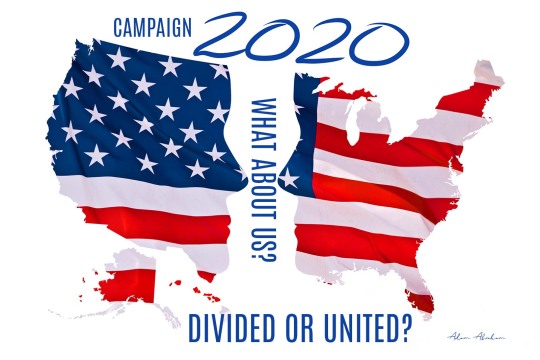
New Post has been published on http://www.phaelosopher.com/2020/01/09/make-elections-meaningful-again-mema/
Make Elections Meaningful Again (MEMA)

The race to determine who will be chosen in 2020 to serve as President is well under way. As things presently stand, the American People, and hence, the world, are in the fast lane to being short-changed again.
Among the cacophony of sound bytes, talking points, and platform positions, a crucial voice that should otherwise be driving the discourse, remains silent; namely, the voice of the American People. We have become accustomed to watching and listening to a parade of candidates, doing our best to discern whose ideas or campaign promises are most palatable.
Further complicating things, is the fact that the winner will come from one of two major political parties. It appears that one must be a member of the Democrat or Republic Parties to have a chance at running for the general election. This proviso further constrains not only what subjects will be discussed, but the stances the candidate will take.
For example, in support of the hysteria around the administration of vaccines to children, ostensibly as a “preventative” measure against certain diseases, lawmakers in some states have pushed policies that strip away a parent’s right to refuse such injections in spite of a dramatic and alarming rise in the frequency of adverse incidents, and over $4.2 billion in payouts.
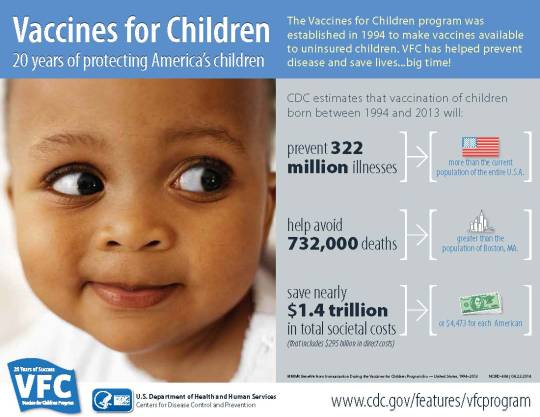
This is how the CDC justifies its vaccination directives.
In spite of these developments, wherein no natural, non-vaccine alternatives are even considered, the Democrat Presidential candidates, and Mr. Trump all sing the chorus that the shots must be given.
Common sense would suggest that these practices be curtailed at the very least, if not abandoned altogether. A significant portion of the population have expressed opposition to the pressure that state and federal agencies are exerting to “get the numbers” of vaccinated individuals higher, even though they are already above 90% for most. Yet, it appears that lawmakers have not noticed, or they just don’t care.
In either event, the American People’s voice in opposition to these initiatives, is not being sought, heard, or respected.
The Tyranny of Habituation
If someone wants their children to be vaccinated, their right is not being challenged. However, in spite of constant denials of connection, vaccine injections do great harm to the recipient, which the practitioners themselves are either blind to (according to their training), or they simply don’t want to be on duty when the public wakes up, en masse, to the medical and health tragedy that they are party to.
With the creation of the National Vaccine Injury Compensation Program (NVICP) in 1986, a way was made to deflect liability away from government and private sector operatives, by doling out payouts to parents who were able to “prove” their child had been injured by vaccine injections.
The first line on the NVICP website states:
Vaccines save lives by preventing disease.
This statement, and way of thinking, is not supported by science, or experience. Children are getting disease and dying as a result of these practices. Settling with money while requiring a parent to “prove” damage is a woefully inadequate response, when (1) the potential for such damage can be identified before the fact, and (2) natural alternatives that yield no adverse effects, are readily available.
Calling the National Vaccine Injury Compensation Program a “no fault” alternative to the traditional legal system is certainly a misnomer. By focusing the issue of recourse on financial compensation, the practice itself is left unchallenged, leaving millions of children at continued risk. Furthermore, effective methods of prevention, as well as restoration (reversal) are suppressed.
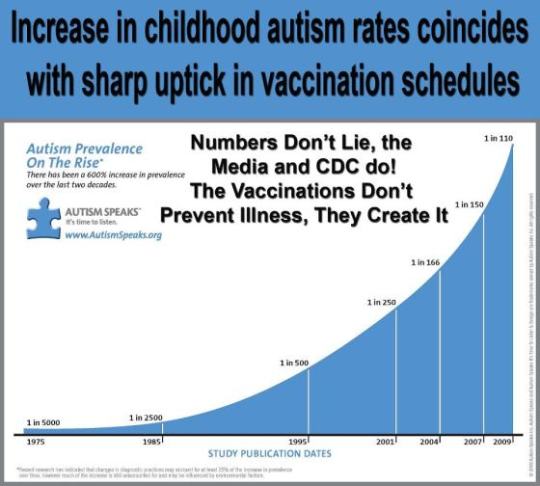
IMAGE SOURCE: AUTISM SPEAKS
Instead of showing caution, or curtailing the schedule in light of proven damage, administrators have elected to accelerate the schedule.
Favoring Principles Over Parties
Political elections should be conducted as a “race” between “two parties” (as their members the only ones having fun in this arrangement). Instead, they should be conducted in a way that allows candidates to present their *vision*, solutions, and plans, and see which ones resonate most with, and best serve, the broadest spectrum of American People.
The ability to “raise funds through traditional channels” is a gross limiter of options, because members of those “traditional channels” have agendas that are more important *to them* than the health or well-being of the American People.
How is an almost $800 billion “defense” budget (which pays for such items as “miniature” drones that cost $80,000 each and large drones that cost $15.9 million EACH (MQ-9 Reaper) and escalation of death and destruction, making America “great” or the world safe, especially when there exists NO national initiative to support a restoration of American soils, waters, and environment?

The Black Hornet Drone
Those miniature drones are TOYS that are sold *only to military and law enforcement agencies* at a price of $80,000 each.

C5 Galaxy IMAGE SOURCE: Dayton Daily News
Years ago, Senator William Proxmire (D. WI) frequently pointed out these boondoggles, such as $600 toilet seat covers for the C-5 cargo plane.

SOURCE: The Washington Post
Wanna know what has changed?
The Air Force recently announced that it would no longer pay $10,000 for that same toilet seat cover, for the same plane. They say they can 3D print it for $300.
There is no mention as to how and why did they allowed the price to escalate to such levels in the first place. These prices include billions that are allocated to build planes, such as the $400 billion F-35 Stealth Fighter that is rife with Category 1 flaws (see story), and the first billion dollar plane, the B-1 Lancer, and the even more expensive ($2 billion+) B-2 Spirit.
The cost of making these aircraft is only the start. There is the additional cost of operating (fuel, etc.) maintaining, as well as munitions and associated technologies, born of plans for military readiness for wars to come.
Where are the plans, overtures, or commitment to peace? The safety of the American People ~ if that were the true motivation behind these fiscally and psychologically irresponsible activities ~ is not served by increasing hostilities or fear, in the U.S. or abroad.
This is the same thinking that, during World War I, countermanded an attempt by soldiers on the Western Front to affect a truce during Christmas (1914).
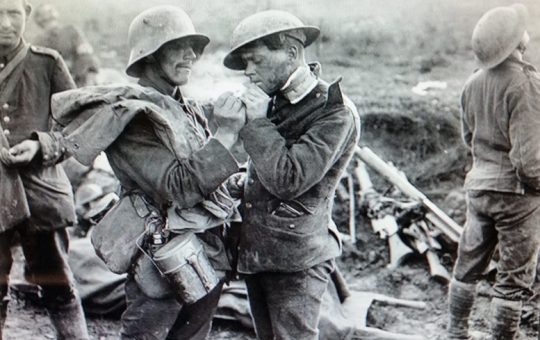
IMAGE SOURCE: BG Independent News
And before anyone points fingers at the military branches, congress ultimately had to approve those expenditures too, as they are doing now.
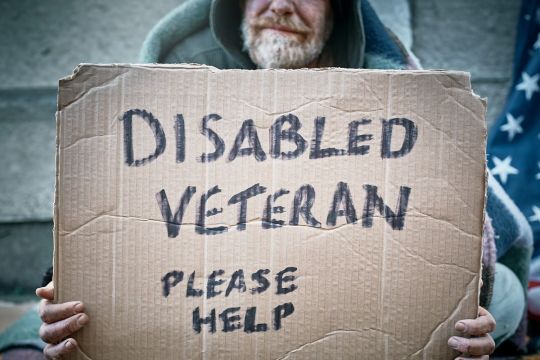
IMAGE SOURCE: INVISIBLE PEOPLE
But they can’t find reason (or compassion) to give real care to veterans, a high percentage of which are homeless, depressed (PTSD), and suicidal, who have given up their health, limbs, and lives, NOT FOR THE AMERICAN PEOPLE, but to fan tensions and instigate conflict.
The payoff for the American People is dubious at best: starting with more debt. The so-called “National Debt” has surpassed $23 trillion as of this writing. Every dollar spent for planes, ships, drones, and bombs adds to those totals, for which we receive no useful return.
Infirmity, depression, disease, debt and suicide are “useful” to a very small segment of the population. Infrastructure, environment, and health ~ physical, mental, financial, and social, are left in the lurch.
In a continuation of the fiscal robbery that is the private monetary system, the purchasing power of the U.S. dollar continues to plummet. People are paying upwards to $100,000 for high-end American cars from GM and Ford.

Consider that in 1964, a Rolls-Royce Silver Cloud III cost a princely $16,660.
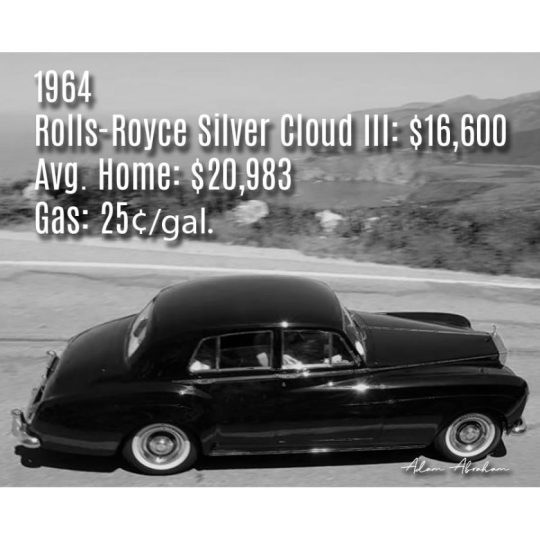
I realize that most of the population would have no recollection of this data because of not having yet been born. Therefore, the steady and expected decline in the value of money, which increases the difficulty and time it takes to acquire and maintain such assets as cars, homes, and other vital assets, is unlikely to engender protest, no matter how appropriate it may be.
Those who do recall these past times may be too busy trying to make ends meet, protecting what assets they have managed to build, or coping with the onslaught of chronic and degenerative disease, to take any steps to upset the apple cart..
Has anyone noticed the gross SILENCE around these topics, especially from the candidates, both the incumbent and the wannabes?
With “conversion rates” from health into the autism spectrum now at 1:59 children, or 16.8 per 1,000 as a consequence of standard health administration policies and practices, how can any politician support initiatives that try to force a parent to abdicate their responsibility and desire to protect their child according to their own knowledge, research, and common sense?
There are several very simple and definitive ways to demonstrate, not a connection between certain vaccines and autism, but a connection between said vaccine and the impairment of neurological, cognitive, and metabolic function. This is more important than the actual name that the medical profession has given the malady, for said names are not relevant to either the actual genesis of the problem, or the solution.

IMAGE SOURCE: INFOWARS
Vaccines are the Trojan horses of our age, moving past natural defenses based on the good faith trust that the public has granted the medical profession, which said profession, aided by education, government and quasi-government factions, have put so many children and future generations at risk.. even their own.
Ask yourself do you want four more years of this shit?
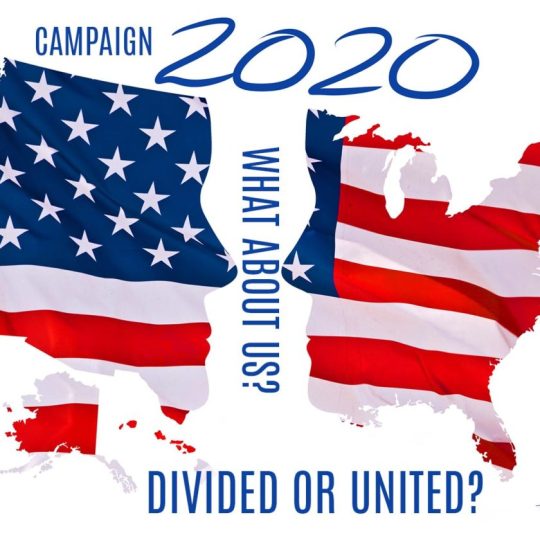
I’m not talking about Donald Trump. He was in my view, indeed, the better choice in 2016 of the two that were left. We deserve better than Donald Trump. However, we deserve better than every candidate that I’ve seen so far.
Ask yourself the following question: Which candidate(s) stand for the following:
PEACE
Health/Healing
Vaccine MORATORIUM / CHOICE
Circumcision MORATORIUM / CHOICE
Approve a list of NATURAL ALTERNATIVES to oxygen reducing and electricity-disrupting, cellular-stress causing vaccines.
Establish and support an initiative of large-scale CARBON REPLENISHMENT of soils, in both rural and urban areas. In addition to planting trees, some of those military subsidies can be used to make and distribute BIO-CHAR on soils, to increase their water retention capacity.
Adopt WATER VITALIZATION technologies and strategies to gain more benefit from water used while REDUCING chemicals and demand.
ABOLISH POLITICAL PARTIES / ADOPT HUMAN PRINCIPLES
REBUILD ROADS, BRIDGES, and WATER DELIVERY infrastructure so as to use LESS chemicals.
There are just some of the things we can do to change the direction we’ve been headed.
There exists an adversarial relationship between the American People and its government representatives, most whom are unelected career administrators. Lulled into a lethargy of false security, the People have been unwitting and misinformed accomplices in their own social demise.
Building walls, dropping bombs, and directing energy weapons at “enemies” will not deliver us from the swamp. We can’t hide behind the dictum, “Our country, right or wrong.” America is doing a lot of wrong, both internationally and at home. If Americans don’t voice and register their disapproval and take action to change these habits, the habits will change Americans.
Please follow and like us:

0 notes
Text
Robert De Niro's 10 Best Movies, According To Rotten Tomatoes
Although his recent slew of crass comedies would convince you otherwise, Robert De Niro is one of the most revered and talented and dedicated actors working today. His acting credentials will be put to the test this year in Martin Scorsese’s latest crime epic, The Irishman, as digital de-aging techniques will be used to allow him to play mob hitman Frank Sheeran all throughout his life. But even if that one doesn’t work out, he’s still got an impressive body of work spanning the past few decades. So, here are Robert De Niro’s 10 Best Movies, According To Rotten Tomatoes.
RELATED: 5 Reasons We're Excited About The Irishman (& 5 Things We're Worried About)
10 TIE: Silver Linings Playbook (92%)
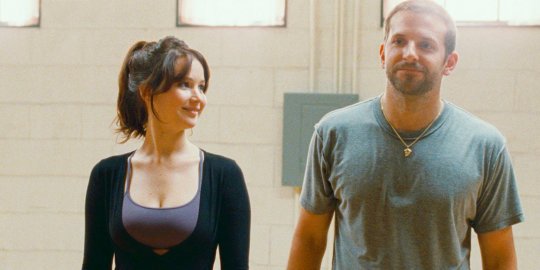
The true stars of Silver Linings Playbook are Bradley Cooper and Jennifer Lawrence, whose love story is the focal point of the movie, but Robert De Niro provides strong support as Cooper’s dad who is superstitious about sports. We all know the kind of guy who thinks that his traditions have some kind of tangible impact on the outcome of a football game, and De Niro plays that role perfectly. When De Niro’s character opens up to his son, played by Cooper, and he breaks into tears, you’d have to be made of stone not to break into tears with him.
9 TIE: Bang the Drum Slowly (92%)
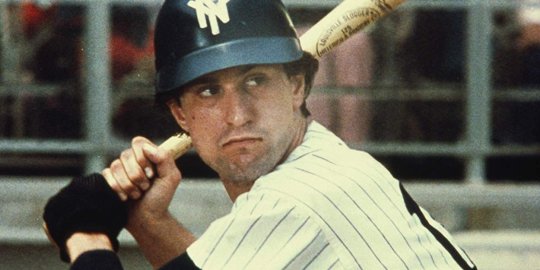
This was the second film adaptation of the baseball novel of the same name, but the first to take the source material’s title (the previous version, starring Paul Newman, was released under the title U.S. Steel Hour). Bang the Drum Slowly tells the story of the relationship shared by a baseball star with a terminal illness and his younger, smarter teammate. It was released in 1973 when no one other than serious film buffs and Hollywood insiders had heard of Robert De Niro. This, paired with Mean Streets, made De Niro’s career. This is reportedly Al Pacino’s favorite movie of all time.
8 The Deer Hunter (94%)
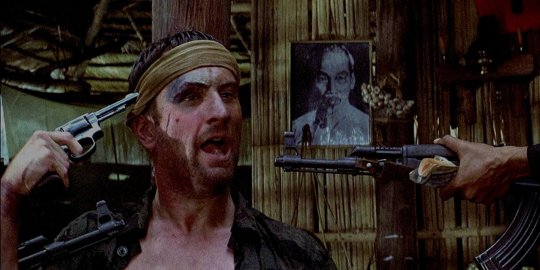
Michael Cinimo’s The Deer Hunter is about the Vietnam War, but it’s more about three soldiers than it is about the war as a whole. The movie is a three-hour epic, yet it only ever spends about 20 minutes in battle. We get to know these guys as steel workers in a middle American town before they get drafted, and then we see how the war has affected them in startling ways. One of them stays behind to play Russian roulette; one is stuck in a wheelchair in a veteran’s hospital. And those 20 minutes are so gruesome and visceral that we won’t be forgetting them any time soon.
7 TIE: Raging Bull (96%)
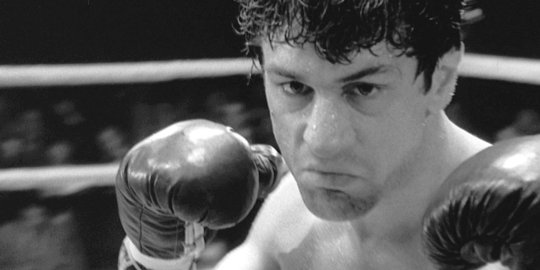
When Martin Scorsese makes a biopic, he finds the fatal flaw in his subject and builds the movie from there, using it as their downfall in a poignant character study. This is on prime display in Raging Bull, Scorsese’s cinematic retelling of the life of boxing legend Jake LaMotta. The black-and-white masterpiece focuses on LaMotta’s jealousy.
RELATED: Martin Scorsese's 8 Best Biopics, Ranked
If someone so much as looks at his wife, he flies off the handle, and ironically, that’s what drives her away. The boxing isn’t just used for the aesthetic here – although it is beautifully shot by cinematographer Michael Chapman – it’s used thematically to show LaMotta taking out his rage; why he goes into the ring in the first place.
6 TIE: Mean Streets (96%)
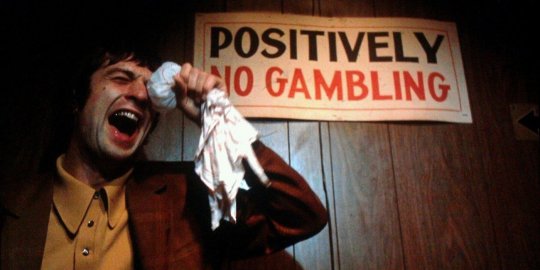
Mean Streets was Robert De Niro’s first of many collaborations with director Martin Scorsese. It wasn’t Scorsese’s directorial debut, as he’d already helmed a couple of forgettable films for producer Roger Corman, but it does feel like the first true Scorsese movie. With its story about organized crime, rhythmic tracking shots, and artists like the Rolling Stones on the soundtrack, Mean Streets has got Scorsese’s signature style all over it. At its core, it’s an interesting two-hander starring Harvey Keitel as a gangster conflicted over his religious beliefs and Robert De Niro as the unpredictable friend that he feels responsible for.
5 TIE: Midnight Run (96%)
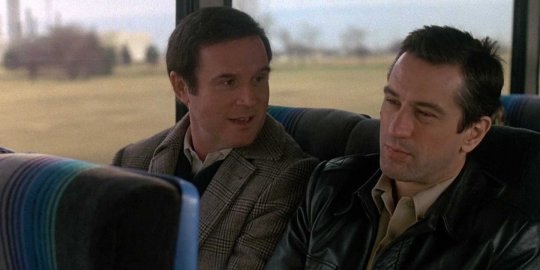
A rare action comedy that has plenty of both exciting action and hysterical comedy, Midnight Run stars Robert De Niro as a bounty hunter and Charles Grodin as the mob accountant he’s assigned to bring in. The plot thickens as Grodin pleads his innocence and the mob, the feds, and fellow bounty hunters are all on their tail. Midnight Run is like Planes, Trains, and Automobiles with machine guns and explosions. Underneath all the spectacle of the action set pieces, the focus of Midnight Run is on the characters’ relationship. De Niro and Grodin’s on-screen chemistry goes a long way.
4 TIE: Goodfellas (96%)
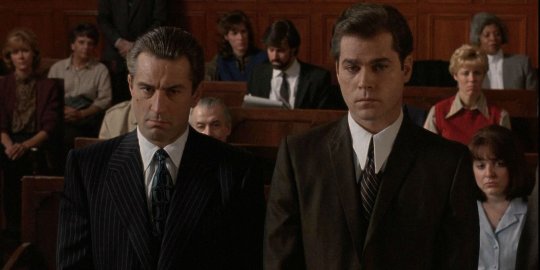
Martin Scorsese set out to make the quintessential mafia movie when he directed Goodfellas. It was the true story of Henry Hill, a New York kid who grew up with aspirations of the gangster lifestyle and ended up ratting out all his friends to the feds.
RELATED: 10 Most Memorable Quotes From Goodfellas
Scorsese dives right into the story with a corpse in the trunk and then bounces around the timeline in a riveting, fast-paced cinematic ride. This wasn’t a romantic portrait of mob life like The Godfather; this was a more realistic portrayal, focusing on the ground-level guys who do all the dirty work and only see a fraction of the rewards.
3 The Godfather Part II (97%)
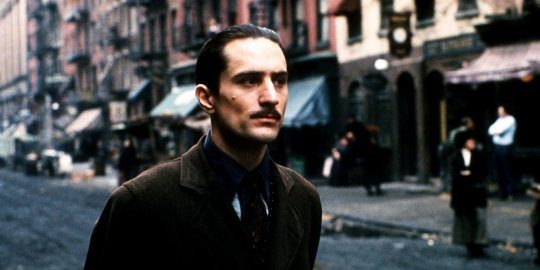
Although Robert De Niro and Al Pacino wouldn’t share the screen until Michael Mann’s Heat, they did star in the sequel to The Godfather together. In one of the rare cases where the sequel is actually better than the original – and bear in mind that, in this instance, the original is considered to be one of the greatest movies ever made, so that’s some feat – The Godfather Part II follows the parallel storylines of Michael Corleone taking over the family business following his father’s death and his father’s days as a starving immigrant, starting the business in the first place. It earns “Part II” in its title by being the natural progression of the story set up in the first one.
2 TIE: Brazil (98%)
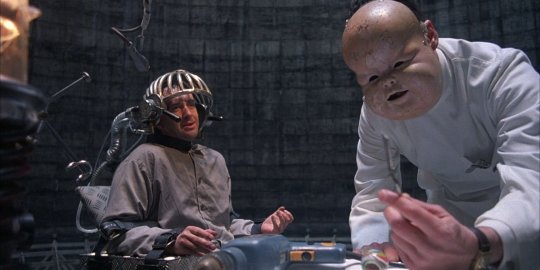
While it may have bombed at the box office on its original release, Terry Gilliam’s satirical sci-fi comedy Brazil has since gone on to be praised as the underrated masterpiece that it is. It’s far too weird and confusing for mainstream audiences, but it’s a masterclass in surreal imagery, with every single frame bursting with imagination. Robert De Niro only has a small role as Harry Tuttle, but he accepted it because he was desperate to be in the movie. He wanted to play Jack Lint, but Gilliam had already promised the role to fellow Monty Python alum Michael Palin. De Niro loved the script so much that he accepted a minor part just to be in it.
1 TIE: Taxi Driver (98%)
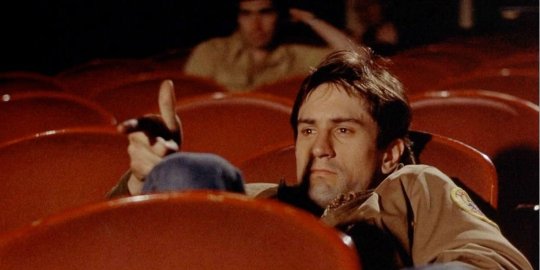
Martin Scorsese never made a movie about the Vietnam War when all of his contemporaries were in the ‘70s. Instead, he made a movie about the effects of the Vietnam War. Taxi Driver is a dark, disturbing character study about a veteran who returns from the conflict with PTSD and insomnia, and fills his time driving a cab around New York. Along the way, he plots a political assassination and befriends a child prostitute, culminating in one of the most controversially violent climaxes in film history. Taxi Driver acts as a showcase for Robert De Niro’s talents. If Dirty Grandpa made you lose faith in him, go back and rewatch his performance as Travis Bickle to have that faith restored.
NEXT: Will Smith's 10 Best Movies, According To Rotten Tomatoes
source https://screenrant.com/rotten-tomatoes-best-de-niro-movies/
0 notes
Text
Review of 13x23 “True Colors”
I have not said this since 13x16, but this was a great episode of Grey’s Anatomy. Was it perfect? No. But it did show us that the show we have loved for so long is still capable of bringing it. I have a feeling this is going to be a long review, so grab a seat, and let me know what you think.
The episode opens with Meredith talking about those moments in life when everything seems to be going well. She says it’s as if the stars align. And we’ve all been there right? Literally, everything is perfect…so we’re just waiting for the other shoe to drop. And in this episode, the shoe crushes them.
It’s interesting that the last episode I loved was directed by Kevin McKidd because this one was, too. He is quickly becoming one of my favorite directors for the show. I thought the scene where the Army soldiers show up at his door to tell him about Megan was so well done. I know it was frustrating to not hear exactly what they said to him, but it is also realistic. In life, there are often life-altering moments that we don’t see coming, and it is as if we are not fully experiencing them. Our body is there, but our mind goes someplace else. For Owen, he is thrown back into his experiences overseas, finding out Megan’s plane crashed, and the guilt of being the one to tell her to get on the plane. He hears what they are saying, but he isn’t processing it correctly because of his PTSD. This is such a likely reaction from someone who has been through what he has, and Kevin impressed me with his delivery of it.
Stephanie returns to the hospital. Webber signs off on her returning, probably so he can feel guilty later, and she jumps back in to work. I am still trying to figure out the point of her suspension if they weren’t actually going to go anywhere with her supposed anger issues. I guess in a roundabout way it led to her being on the rapist’s case because Eliza wouldn’t let her do Neuro, but other than that…
Alex is in L.A. imagining multiple scenarios of pummeling Jo’s husband. I have to say, as much as I don’t want Alex in jail, a part of me was sad that he didn’t really leave him bloody on the sidewalk. And this is a good sign for Jolex, even if Jo wasn’t even in the episode. The fact that Alex envisions different ways of hurting the man who hurt her shows how much he still loves her.
Then we meet our patients. April and Bailey are with Allison, and Deluca and Stephanie have Keith. It looks like they were having sex in their car and one of them accidently hit the gas pedal, which causes lots of sex talk amongst the doctors throughout the episode. They never pass up a reason to talk about sex at Grey-Sloan.
Cut to Owen on the elevator. He is still very much in his own head. The muffled audio and focus on the sound of Owen’s breathing instead was an effective way to show that he is not registering his surroundings. All he hears are his own thoughts. The baby who choked on the coin comes in, completely blue. Owen’s survival instincts are still there. He may be rough and insensitive, but he saves her.
Back to Allison. April, Bailey, and Maggie are working on her. Maggie says, “I hope the sex was good.” April replies, “Is sex in a car ever that good with all those windows?” And the Japril fandom freaked. Guys, I get it. It’s been eight weeks. But this was not a dig at the 11x16 Japril scenes. This was a genuine April Kepner reaction. April, who was a virgin until she was almost thirty and has had sex with one man in her entire life, is definitely not an exhibitionist. And I’m gonna get a little TMI here, but she’s right. The backseat of a car is not roomy, seat belts end up in places they shouldn’t be, and then there is the paranoia that someone could see you. I’m with April. Car sex may be fun and hot at times, but there are many other places it could be better.
Allison wakes up asking if the guy she was with is alive, and at this point, the entire audience knew something was up, but of course, our Grey-Sloan doctors do not.
Jackson, Stephanie, Meredith, and Deluca are with Keith. Eliza is there to complain about something, as usual, and Stephanie gets stuck with babysitting duty.
We have our first hint that Erin, the little girl who keeps wandering away, is going to have more of a story when Mer finds her digging through drawers in the hallway that they apparently don’t keep locked but are full of loaded syringes of epinephrine. Totally believable.
Arizona and Amelia give the choking baby a clean bill of health and Amelia gets her first hint that something is up with Owen when the parents ask to see him because he “pounded” on her. Amelia finds him. He snaps at her, but she doesn’t push him for more yet.
Jackson and Stephanie are conveniently in the room with Keith when he wakes up. Props to Jesse Williams for pulling that tube dripping in saliva out of his mouth with no gloves. When I saw the spit drop, I gagged a little. Keith seems like a sweet, concerned boyfriend. Poor Keith, right?
Mer and Riggs find Erin in the radiology department messing with equipment. Mer’s comments, “I know this girl. She’s trouble,” and “Some people just need a nanny,” seem off to me considering she went off on a guy for mom shaming a woman in the plane episode who was just trying to do her best in the situation. This feels like a similar situation and she has a completely different reaction. Now, obviously this was just a moment they threw in there so Mer could see how great Riggs is with kids, but they still need to write her character consistently. They return Erin to her dad and Mer invites Riggs to dinner with her kids. If I’m being honest, I’m still not completely sold on their chemistry. I personally think Riggs and Maggie could have been interesting, but this is Grey’s Anatomy, so Grey gets the guy.
Then we get the scene by the OR board with Maggie, Deluca, Arizona, Stephanie, Jackson, and Eliza discussing Allison and Keith and sex. There is a lot being said in this scene and the dialogue moves fast, so I had to watch it a couple times to see and hear everything. Arizona says, “Car sex is only for when it’s new.” Jackson adds, “Or it could be cheating.” And again, the Japril fandom flipped out. Ya’ll. Again, this is not about 11x16. Honestly, that comment is about Jackson and Stephanie having sex in the car after Bailey’s wedding if anything. Stephanie picks up on it, too, I think, which is why she gives him a look and smacks his arm. Jackson and April were not technically together when he had sex with Stephanie, but he felt so bad about it, he went to tell April because he didn’t want her to hear it from someone else. Sounds like it felt like cheating to him. There is more talk of how uncomfortable car sex is and then they transition to how sweet it is that Keith and Alison asked about each other. They discuss whether it was love or not and Jackson says, “This isn’t love we are talking about here. This was emergency sex, and they were just too damn horny to remember the parking break.” Cue freak out number three. Again, I think he is actually talking about this specific situation. The camera didn’t linger on his face to show him deep in thought of his own situation, which Grey’s often does when lines have a deeper meaning. But if I force myself to read into this and relate it to Japril, I just think it means they are confused about what Montana meant. Jackson and April have been talking about sex a lot in the episodes since Montana, so my guess it they are either having it or they want to be. I didn’t get any negative Japril vibes from any of their comments about sex in this episode.
Mer and Amelia. I really wish they would have let Mer listen to Amelia in this scene. If they are sisters, they should listen to each other, but Amelia is often told her problems are a result of her overreacting while Mer’s problems are real and should be dealt with. I wanted this scene to go differently for once.
Amelia sees Owen freak out on the baby’s parents and realizes he is not okay. These two have had some great scenes lately, and this episode is full of more good stuff with them. We find out Megan is alive. I really think that this is setting up a season 14 story. Megan showing up is something we all saw coming since season 12 (just like Jo’s husband returning), and it will create drama for at least Owen, Amelia, Mer, and Riggs. I am interested to see how things play out with Riggs and Mer because Riggs loved Megan at one point. It is all a bit too similar to Derek and Addison, but as long as it doesn’t take them 27 episodes to do anything with it, it could be good.
Brooke Stadler, huh? How does Alex know all of this? Did Jo tell him? I think he said he hired a private investigator, but he would have had to have a name to investigate in the first place. Whatever. I’ll let it go because the story is moving right now. We all know it could be worse.
They remembered Teddy Altman! Another small detail that made this episode really good.
The Jackson and Maggie elevator scene. Guys, go back and rewatch this scene. Maggie is 100% talking about her views on Mer and Riggs. This is her reacting to the small scene at the beginning where she watches Mer and Riggs switch badges because they have each other’s. She is sitting behind the nurses’ desk and the camera shows her briefly. She is clearly still hurting. She says, “Maybe they are in love or maybe they were just horny. It doesn’t matter. We all love, we all get horny, and we all get hurt. And then we come through to the other side. And we get to help them do that. We get to help them find love again…or screw again. Either way. But I think they’re in love. I choose love.” That entire ramble was her inner debate over whether Mer and Riggs are in love or just screwing. That is why she uses we to describe it. She is a part of what she is talking about. She is the one who got hurt that she mentions. But she is choosing to believe that Mer and Riggs love each other because that makes it hurt less. This is not her hinting about sex or love with Jackson. And he is just letting her talk. He evens says he has no idea what she is talking about. And he barely looks at her when they have scenes together. They have been in scenes often since 13x12/13x13, whenever her mom showed up. There have been zero looks, zero lingering touches, zero moments of slow music playing in the background. We miss Japril so much that people are reading into these scenes. Stop doing that!
Then, Allison shatters all their illusions that she was having some lust filled car sex by telling Bailey, Maggie, and Jackson that Keith kidnapped her and tried to rape her. They call security and Jackson realizes that Stephanie is with him. I know not everyone liked this, but I, for one, appreciate his concern. She is his friend, and she is with a dangerous man. I would be surprised if he wasn’t concerned. I also want to add that the guy playing creepy Keith is a great actor. He was believable as both the concerned boyfriend and the psychotic killer. Great casting.
Alex lets Paul go without saying anything. Just like Megan being transferred to Grey-Sloan, this is a set up for next season’s drama. These are those seeds that Debbie was talking about.
When Keith stood up and held that scalpel to Steph’s neck, I really wanted her to punch him in the liver. She’s a badass. I wanted to see her take him down.
Owen sleeping on Amelia’s lap was the sweetest thing. We need more loving moments between our main couples. This episode had no fighting couples or relationship drama, and it was one of the best of the season. I hope someone who matters is paying attention to that.
For Japril lovers, watch the scene where Bailey is giving instructions to the security team and calling for a code orange again. They deliberately show April is in the room with Allison, then Jackson comes in and announces Keith and Stephanie are missing. The camera pulls away, but if you watch Jackson, his eyes are in that room on April. It’s a small moment, but it’s there.
Jerrika Hinton was fantastic in all the scenes with Keith. The scenes on the stairs and in the hallway they were trapped in had me on the edge of my seat not breathing. And then Erin appeared. “Hi.” Creepy Keith asked her name, and I started freaking out. Where has this fantastic storytelling been all season?!
Mer took learning that Rigg’s fiancé is alive better than I would have. But she makes a good point. If it were Derek, she would want to know immediately. As much as I am not into Griggs, if they do this story right in season 14, it could be really compelling.
Jackson and Maggie sit on the gurney and talk about Stephanie. Jackson is stressing. I get the question of why isn’t he worried about April and Harriet. But, come on, he specifically knows Stephanie was with him because he left her there. He feels responsible. This doesn’t take away from the fact that he cares about April and Harriet and wants them to be safe, but this story is about Stephanie right now. And as much as my Japril heart wants him to go check on his girls, I just pointed out that he saw April. He knows she is okay right now. They showed April in that room for a reason, so we knew Jackson saw her. They didn’t make a big thing of it, but it happened. And again, nothing about this conversation between the two of them is anything to freak out about.
As hard as the scene where Keith tries to start the fire is to watch, I have to say I am so damn proud of Stephanie. It’s violent, and it’s ugly, but how badass is it that she literally set a rapist on fire? Unfortunately, he didn’t burn fast enough to take the crazy out of him. His last act alive is to purposefully set off an explosion, and Stephanie selflessly tries to stop him. Now this may be a spoiler, and I apologize if it is, but we know from the BTS pic that Sarah Drew posted that April, Jackson, Ben, Bailey, and Webber more than likely operate on Stephanie in the finale, so she is probably not dead at this point. I say at this point because I think she does die in the finale.
I know this is a long post, and if you have made it this far, thank you for sticking in there. I do have one more thing I want to talk about, though, and that is Japril. Or rather Jackson, April, and Stephanie. I know that so many of us are waiting for the finale to come through for Japril to decide if we stick around for season 14. I’m with you all on that, but I want to throw something out there I have been thinking about. Maybe I’m overanalyzing or maybe not, but here goes.
I think that in life, and in fiction, people meet for a reason. Sometimes it’s a good reason. We find friends, lovers, mentors, or just a helping hand or needed smile. Sometimes we meet people for reasons that aren’t always good. These are the people who teach us the hardest lessons. They hurt us, they leave us, they damage us, but we come out stronger in the end. I think that Stephanie was a part of Jackson and April’s life for a reason. Maybe the show didn’t get this deep with their connection, but I can’t help but wonder. Stephanie joined the show in season nine. Correct me if I am wrong, but the first scene that April and Stephanie interact in is the scene where April sets Jackson and Stephanie up for Bailey’s wedding. This is obviously a significant moment between the three of them although none of them knew how significant at the time. This moment leads to the car sex that Jackson calls cheating in this episode, and of course, that moment where April tells Jackson that all she can think about is kissing him. April unintentionally hurt herself by setting them up, but she acts like an adult and doesn’t treat Edwards badly. We see this in the scene where she teaches her to run the pit. It’s the same episode where Jackson and Stephanie are trying to have sex, but she mentions April’s name and he can’t go through with it. “Kepner’s running me ragged.” Instead of going with his feelings, Jackson dates (ignores?) Stephanie and April gets engaged to Matthew. Stephanie being in their lives at this point helps Jackson learn a hard lesson. He realizes while working on his first big throat patient that he loves and wants to be with April. He stands up at April’s wedding (Thank God), but Stephanie gets hurt in the process. The dynamic between the three of them has always been this cycle of hurting and learning from each other. Stephanie seems to get over the hurt of Jackson leaving her, and we don’t see much interaction between the three of them until we get that awkward scene where Stephanie does the ultrasound and ultimately discovers Samuel’s OI. I think it was completely intentional on the show’s part that Stephanie was the one to find this. She tells Jo that she wished horrible things for them, although she would have never wished for this. This is another time when they are in each other’s lives at a significant point and one of them hurts the other. It’s not intentional, but it happens. They hurt, they learn from it, and they move forward. After this point, things are not good with Japril. April goes to Jordon, Jackson is hurt by her, and she returns to an uncertain situation. In 12x05, Jackson uses Stephanie to hurt April. It’s subtle, but it’s there. Her flirts with her just enough to get a side eye from April and from the audience. The cycle continues. For a bit, it seemed as if the purpose for Stephanie being in Jackson and April’s lives had been fulfilled. April and Stephanie even seemed almost friends. They work well together, Steph helps her with Tinder, and they banter in the on-call room when April is sleep deprived. It seems as if they are all done hurting each other. Until now. So here is where most of this is just my theory or speculation. There is a reason that Jackson is the one who left Stephanie with Keith. This is another way one of them has hurt the other, but this way ends up being physical. And I think that Stephanie being hurt and Jackson feeling guilty over it will be the last lesson he learns from Stephanie being in his life. I think that Jackson and April are on the team that works on her in the next episode, but they aren’t able to save her. Stephanie dying would be incredibly significant for Jackson since he feels responsible, and may prompt him to finally tell April how he feels. This is the last lesson. I think that Stephanie had a significant role in pulling them apart in season nine, and she will have a significant role in putting them back together now. As usual, I could be wrong. This could all be coincidence and the writers may not have put this much thought into this dynamic. Either way, we find out for sure in one week. Try to hang in there Japril fans. There is no excuse for the poor writing and continuity, but from the BTS pics and videos that Jesse, Sarah and Debbie posted, it looks like we will finally see them interact at least. And if they let us down, then, don’t worry, I will have plenty to say about that.
99 notes
·
View notes
Photo
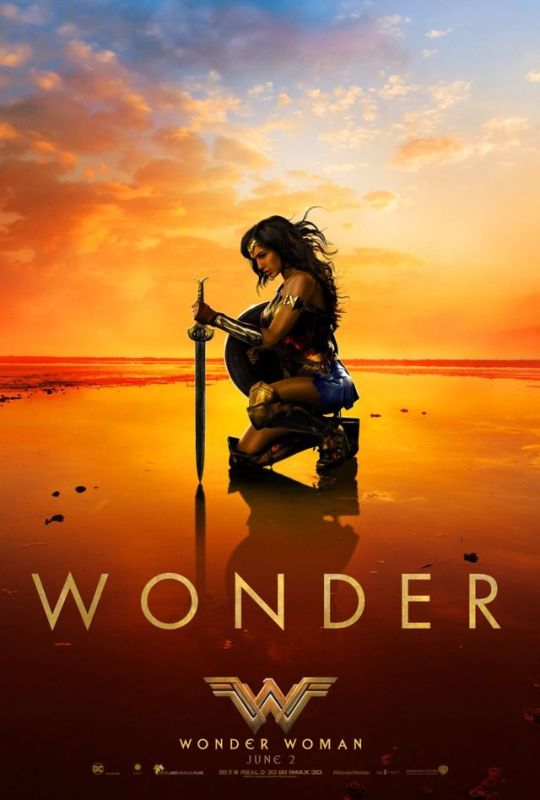
“Wonder Woman” Movie Review
Wonder Woman is the 4th and most recent entry into the DCEU following the likes of Man of Steel, Batman v Superman, and Suicide Squad, and stars Gal Gadot as Diana Prince/Wonder Woman as well as Chris Pine, Robin Wright, Connie Nielsen, Danny Huston, and David Thewlis. This movie was directed by Patty Jenkins and although it is part of the same DCEU as the other films, it is set way before, during WWI. After Steve Trevor (Chris Pine) crashes his plane in the waters of Themiscyra, an island of all and only female Amazonian warriors, Diana rescues him from drowning, and learns from him of a great and terrible war to end all wars. Suspecting an ancient and sinister presence is at play, Diana makes the decision to leave her home and goes off to fight, attempting to save the world from this looming threat and perhaps even itself.
I had fairly high hopes going into this film, and for good reason. There was a lot riding on the first big-budget female-lead superhero movie since Elektra (we all know how that turned out), but there was also a lot riding on this for DC’s cinematic universe. This was the first film in the DCEU that was set far enough apart from the other stories that it could actually feel like its own film, and the team behind it (particularly director Patty Jenkins) had all shown that they knew their stuff. The trailers were all pretty cool (minus the music choice in that last one), the film had been properly marketed, and once the review embargo lifted, the scores for the film grew staggeringly high.) So, yeah, I had my hopes up. Did it deliver? I’m happy to report that yes, it absolutely did…for the most part (we’ll get to that later).
Wonder Woman is a really good movie. Not only does is have far more narrative focus, drive, and depth than the other 3 DCEU entries, it’s also a lot of fun. Watching this film felt like a huge step forward not just for DC, but for women superheroes and women-directed superhero flicks. That of course is thanks in very large part to the extremely talented Patty Jenkins, who puts you right alongside Diana from the very beginning, allowing you to empathize with the character and see the sort of optimistic yet eternally fierce person that she is. This film spends a good deal of time on Themiscyra in its beginnings and the island is just as beautiful and lush as one would expect a paradise such as this to be. I’m not super knowledgeable about the Amazons, their mythology, or their way of life but I found myself intrigued by and relating to, in some senses, the lives they lead and how they interacted with each other, especially our central protagonist. Diana feels just foreign enough in our world to recognizably not be from there but relatable enough that it feels good just to have her take us along for the ride. And boy, what a ride it is.
DC is known for having pretty sweet action sequences regardless of their films’ qualities, but when you add action like this on top of an already pretty solid effort, it just adds a sort of memorability and enjoyment to it that wasn’t there before. And yes, that “No Man’s Land” sequence you saw in the trailer is just as sweet as you hoped it would be, if not more. The other action set-pieces (such as a battle on the sands of Themiscyra) also stack up really well. The Amazons are extremely adept warriors and show off their stuff as much as they can. There’s a lot of slow-motion during much of the action, and it does get a little tired as an effect after time, but it in no way compromises the action scenes as a whole.
Action isn’t all there is to this film, though. It takes some time here and there to have some quieter moments with its main characters. There are genuinely touching scenes that give it a sense of charm and optimism not often seen lately in the DCEU, like Steve teaching Diana how to dance, as well as some that lend of a sense of tragedy to the whole ordeal such as a soldier experiencing some PTSD dreams. When Diana interacts with Steve, both in their own sort of “fish-out-of-water” scenarios, it is an absolute treat to watch, providing a lot of the comedic punch this film has. And yes, people, this film has comedy, and not just comedy in that Man of Steel way where you recognize it but it doesn’t really work. A lot, in fact just about all, of the jokes in this film are genuinely funny.
The performances in this film are all extremely good, in particular Gal Gadot and Chris Pine. These two have fantastic chemistry and play off of each other in an incredibly charming way that doesn’t feel forced or unnatural. Gadot handles the physicality of Wonder Woman beautifully, taking command of every action sequence she’s in, completely making us believe she could wield that sword, swing that lasso, and use that shield with absolutely no problem. And although I wouldn’t have necessarily called it a standout, her performance as the character Diana Prince, when the action isn’t going down is good enough that it works for this film and what this film wants to do with her. Chris Pine, while I wouldn’t say it’s one of his more impressive performances, does manage to steal the spotlight a lot of the time by bringing a lot to both his humor and the conflict his character feels in contrast to Diana’s ideals. He doesn’t outshine Wonder Woman, but Diana Prince might still have just a bit of work to do.
This film is very good and should be looked at happily by both DC and their audience at large; but, it is not perfect. In fact, there are a number of opportunities it misses to explore the deeper implications of what a war like this really does to people, as well as where a war like this can spring from. The third act of this movie also has a sort of mix between that of Marvel-syndrome where the villains are not really that well developed and that DC-syndrome where the final battle is really just a massive fest of action, CGI, and saturated colors a lot of the time. I would’ve liked to have seen more of a subversion of that DC trope, just as the rest of the film is a sort of subversion of the entire idea that all these DC films have to be “dark” now. There’s just somewhat of a break between narrative focus and action focus in the third act, and while it doesn’t necessarily compromise the film as a whole, it does take it down a few pegs.
Still, this is a really solid effort on the part of DC, director Patty Jenkins, and the entire cast to bring Wonder Woman to life on the big screen which pays off a lot. Wonder Woman is a fun, optimistic, action-packed but also character-centric film that shines as easily the best among its DCEU counter-parts and is well worth the price of admission even without those to shine against, proving that not only female-lead superhero flicks can completely work, but female-directed big-budget superhero films should not have taken this long to greenlight. Patty Jenkins, I salute you. Go support this film, guys, seriously.
I’m giving “Wonder Woman” an 8.2/10.
#Wonder Woman#Movie Review#The Friendly Film Fan#Gal Gadot#Chris Pine#Robin Wright#Connie Nielsen#Danny Huston#David Thewlis#DC#DCEU#DC Extended Universe#film#movie#review#WW
2 notes
·
View notes
Text
Horror-esque Representations of PTSD in “Recovery”
Originally published on thatsmye.com on June 10, 2019
As our society grows more comfortable with conversations about mental health and the demons that many carry throughout life, it is becoming a well-known fact that the demons our soldiers and veterans saddle on their back during and after combat can be the most deadly of all.
The new suspense-filled indie Recovery does more than offer cheap thrills, it also sheds light on a dark issue: the lack of support for those put through the perils of war when they return. “According to a study conducted by the RAND Center for Military Health Policy Research, less than half of returning veterans needing mental health services receive any treatment at all.” This is an issue that has long gone unsolved and has inevitably led to another issue of self-medication in a variety of methods, causing matters to spiral even further.
Recovery intertwines the two social epidemics of untreated mental illness and drug addiction, painting a picture of our fraught reality, while also foreshadowing a potential future when the pot eventually boils over (mild spoiler: our main character never reallyreceives help that she needs).
The film takes place at a secluded all-female heroin treatment center in the middle of a fierce snowstorm. Stephanie Pearson gives a riveting performance as Ronnie, a young recently admitted addict who has already gone through three tours of Afghanistan in her life and struggles deeply with PTSD, along with self-denial of her illness. Her symptoms include hallucinations and blackouts that often result in violence and a lack of recollection. She is rebellious, impulsive, and quick to pick an argument with anyone in her way.
Her first interactions at the establishment are with Dr. Jessica Barnes (played by Hope Quattrocki), who is stern, yet has a soft spot for Ronnie, most likely due to the fact that her own brother also served and dealt with the after-effects. Ronnie has a series of blackouts resulting in violence during her first days at the center and the head of the facility, Dr. Taylor (Mike Starr) ultimately decides to discharge her but must wait until the police come in the snowstorm. The atmosphere is already tense until mysterious murders start occurring. All fingers are immediately pointed to Ronnie, but things just aren’t adding up in that narrative. Now, let’s get into the meat of it, shall we?
The pros:
The editing had to be my favorite part of the film. There are these infrequent flashes of ominous looking men, most likely from Ronnie’s past military experience, haunting her before she has a violent blackout. If you choose to give the film a watch, the scene where she gets her uniform out truly gave me chills. The directing and editing choices give an authentic moment of blurring trauma-induced imaginings with reality. This happens more than once, with Ronnie’s hallucinations signaling to her that she is in danger, only to have her mind betraying her as she becomes violent with someone innocent.
As said before, Ronnie’s characterization was really well fleshed out and the performance was in tune with her lines. We know her and we understand her. Everyone else’s characters lagged a bit as a result, but I found myself desperately wishing Katherine (Aily Kei) had some lines! She was a phenomenal supporting role as a young woman struggling with addiction all her life and having communication problems so severe that she is almost somewhat mute. Clearly, her lack of lines is necessary given her character, but it was so convincing that I found myself yearning for Aily Kei’s other performances.
Now for the cons:
I really struggled with some of the details of the story. First off, this is not a horror. Yes, there’s blood and gore, but as the horror genre reaches new heights with new thoughts on fear and the psychology of the viewer, this film falls much more in the thriller genre. And though it aims to touch on PTSD and mental health, as well as how these ailments intersect with drug addiction, there is an abundance of unsatisfactory tropes of rehabilitation patients being portrayed as hopeless cases.
The dialogue is lackluster, failing to explain the important background on some of these characters which just leads the way for stereotypes to manifest. In this day and age, we must get deeper with these issues. There is no true depth to anyone but Ronnie.
In conclusion..
Even though the story bored me at points, lines fell flat, and the music was just not the best, the subject matter of Recovery is important and represents a growing disdain for the lack of resources for veterans. Just take a look at the Army tweet that, well, didn’t go so well. If you’re looking for a decent thriller with some dynamic cinematic choices that also connects to relevant social issues, I would give it a watch. Though there is a clear villain in the end, the monster of unchecked PTSD is also a killer here, as well as in reality.
New horror thriller RECOVERY released on June 4th, 2019 in the U.S. and Canada in-stores, digitally, and on demand.
0 notes